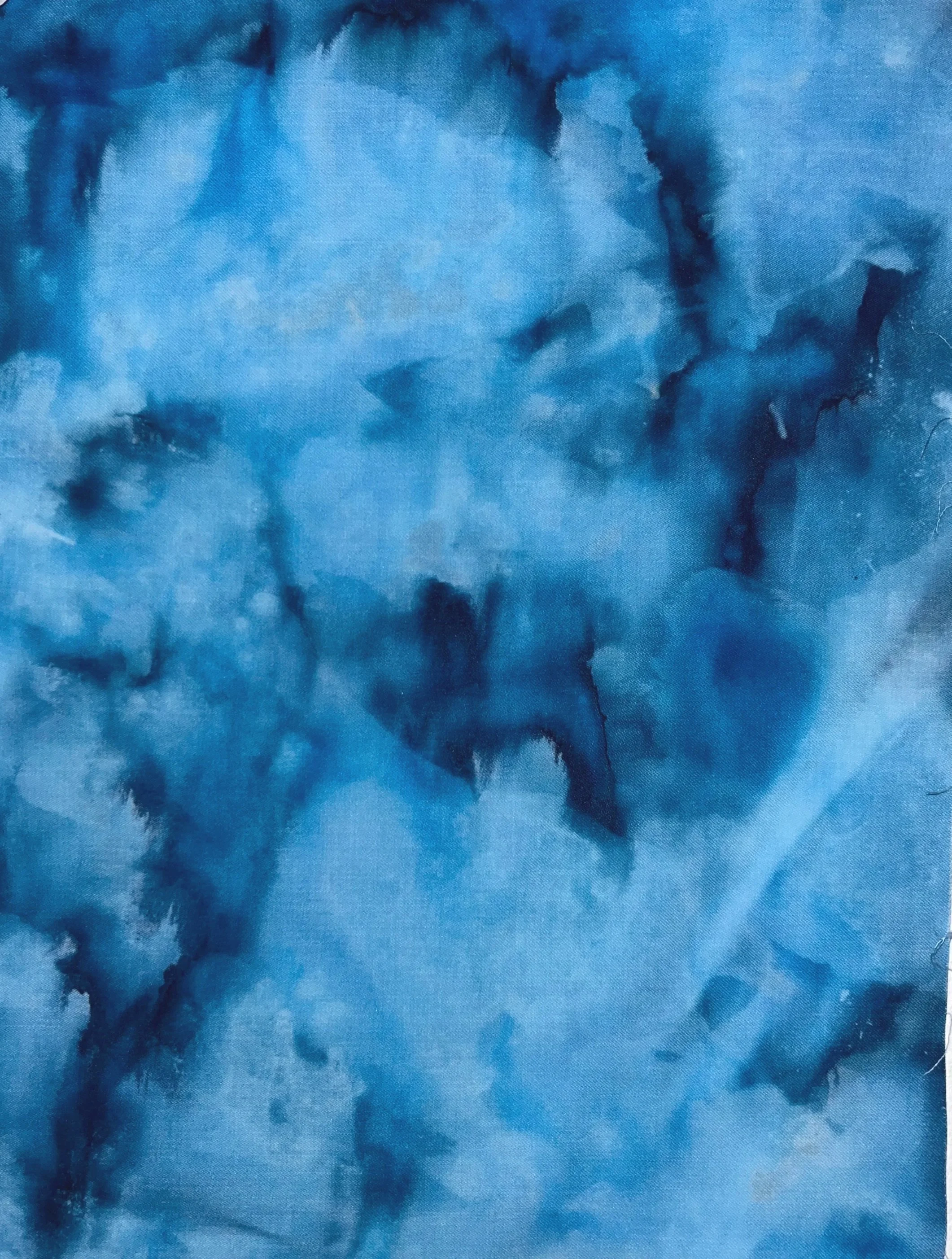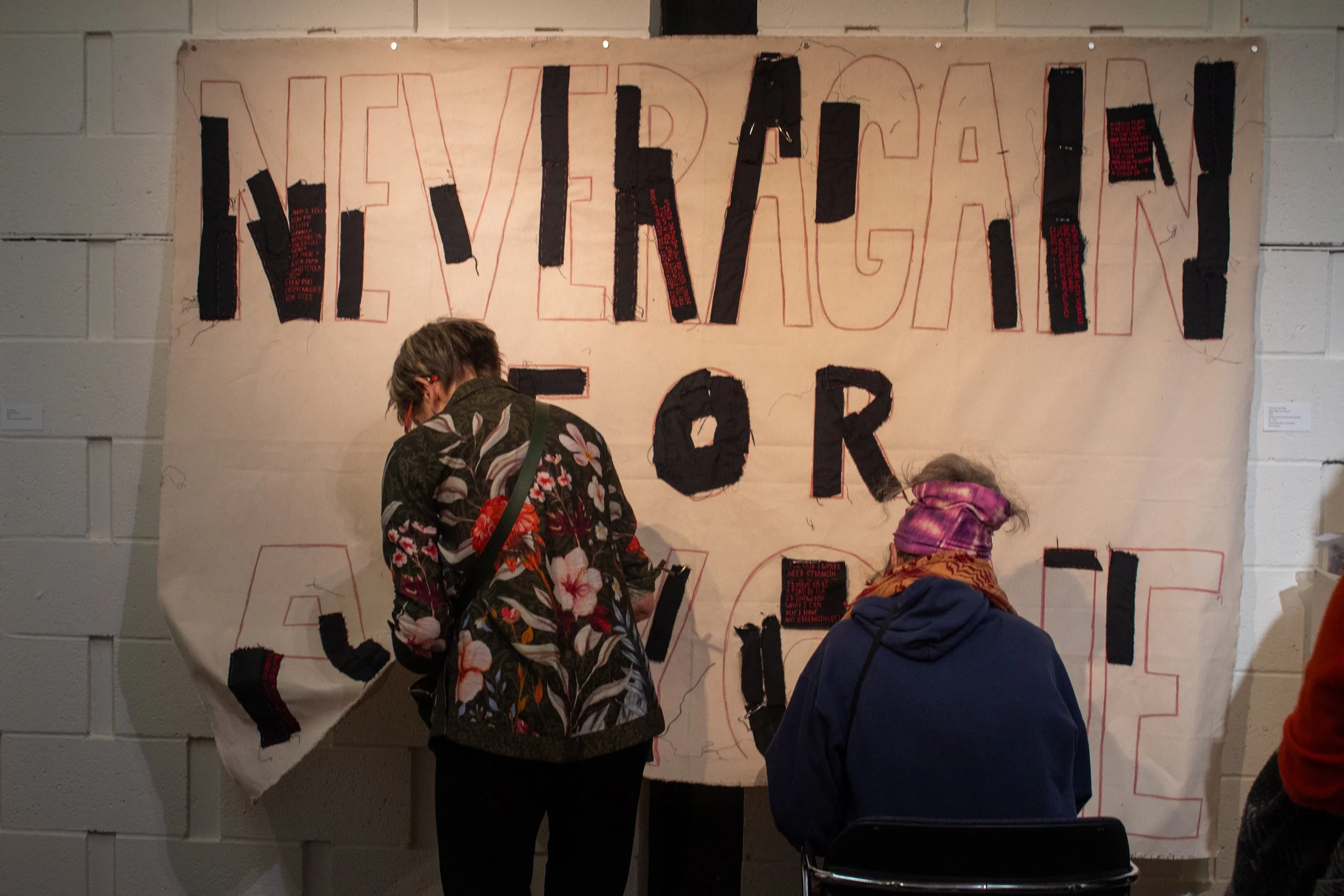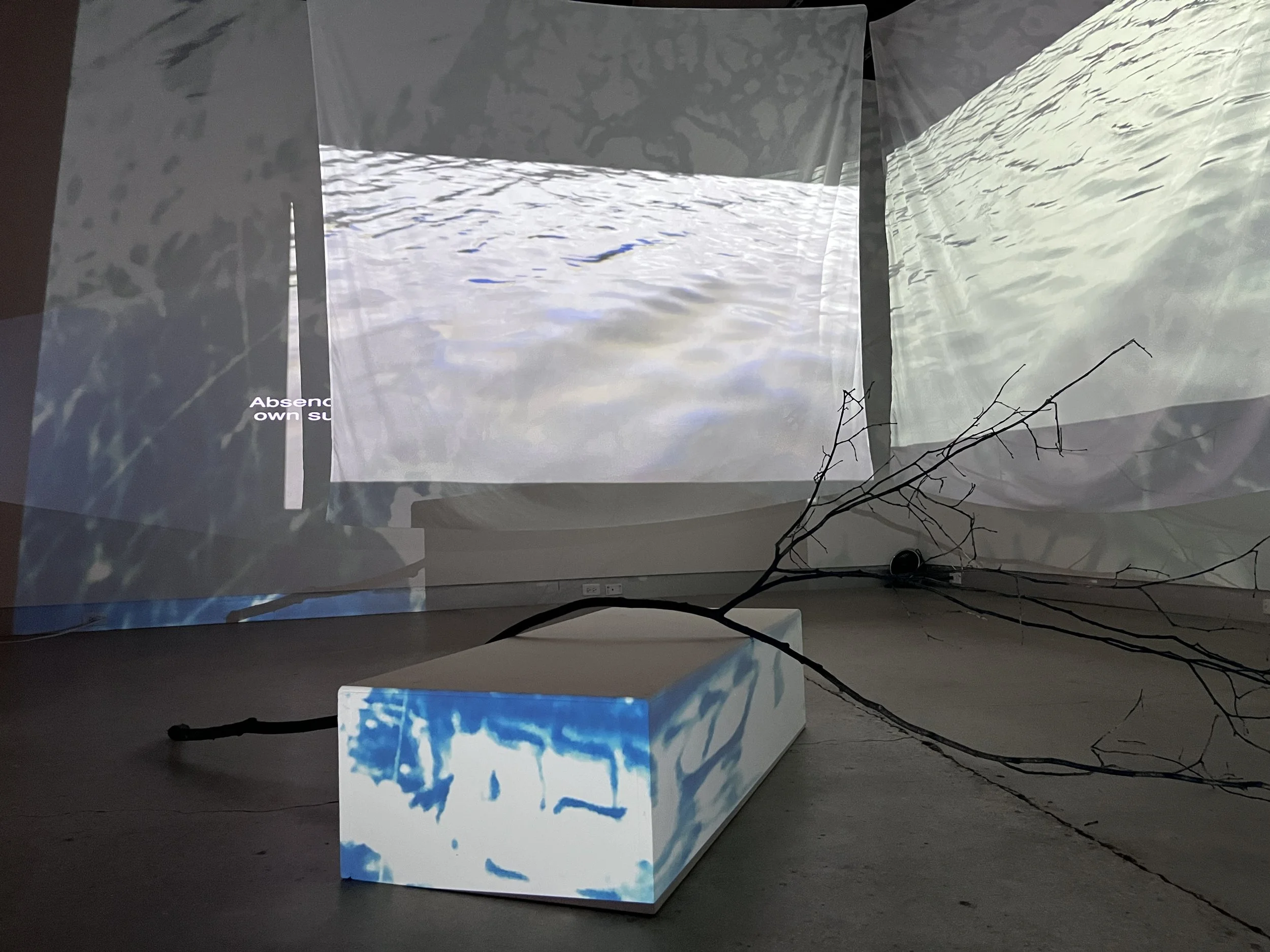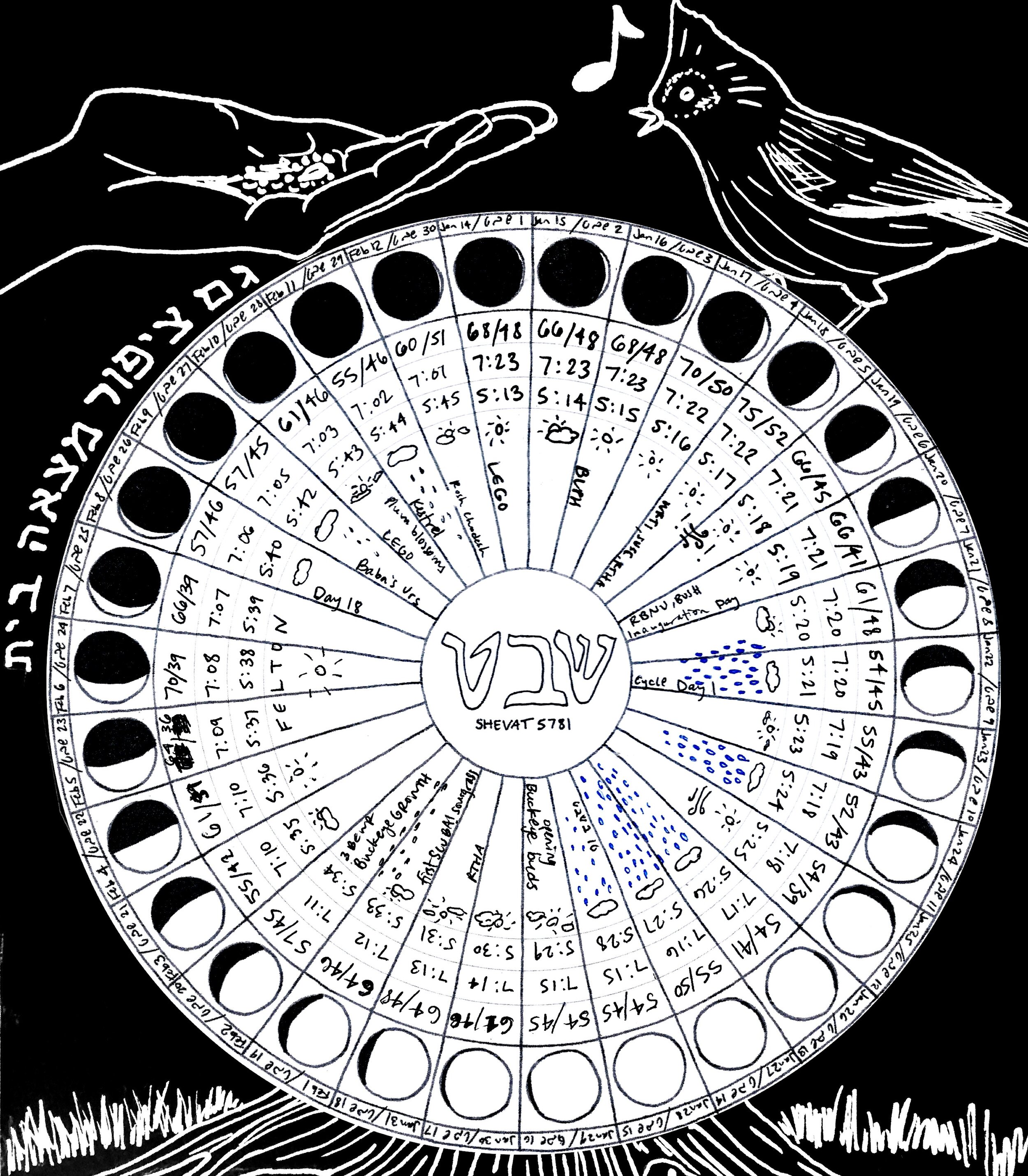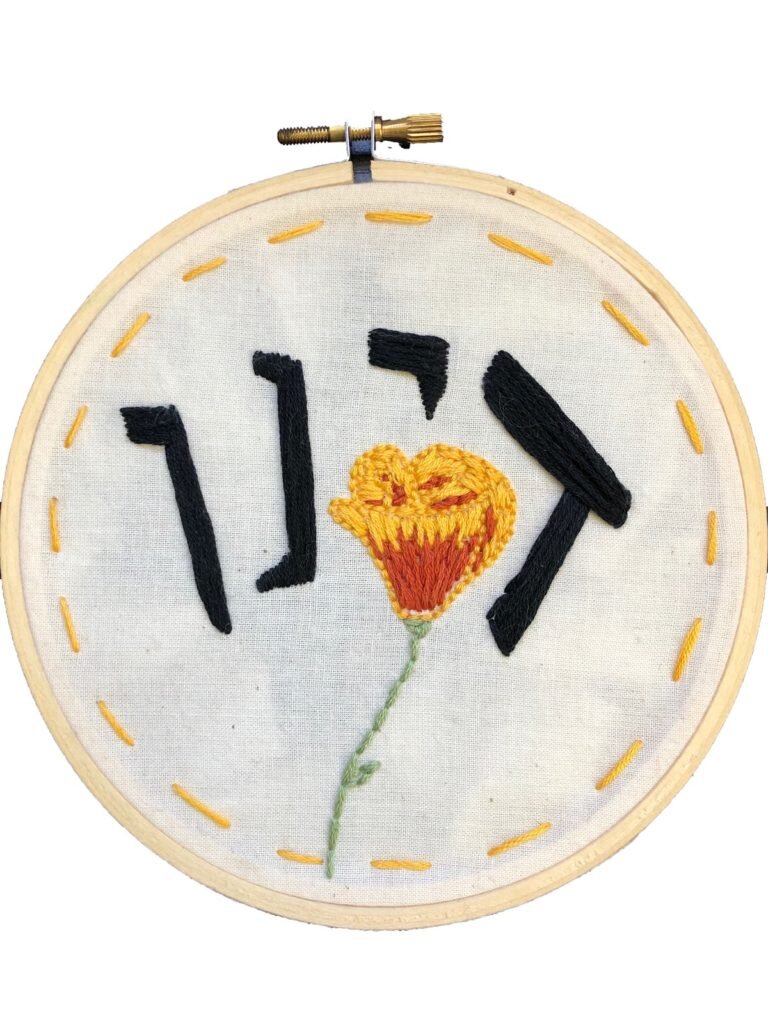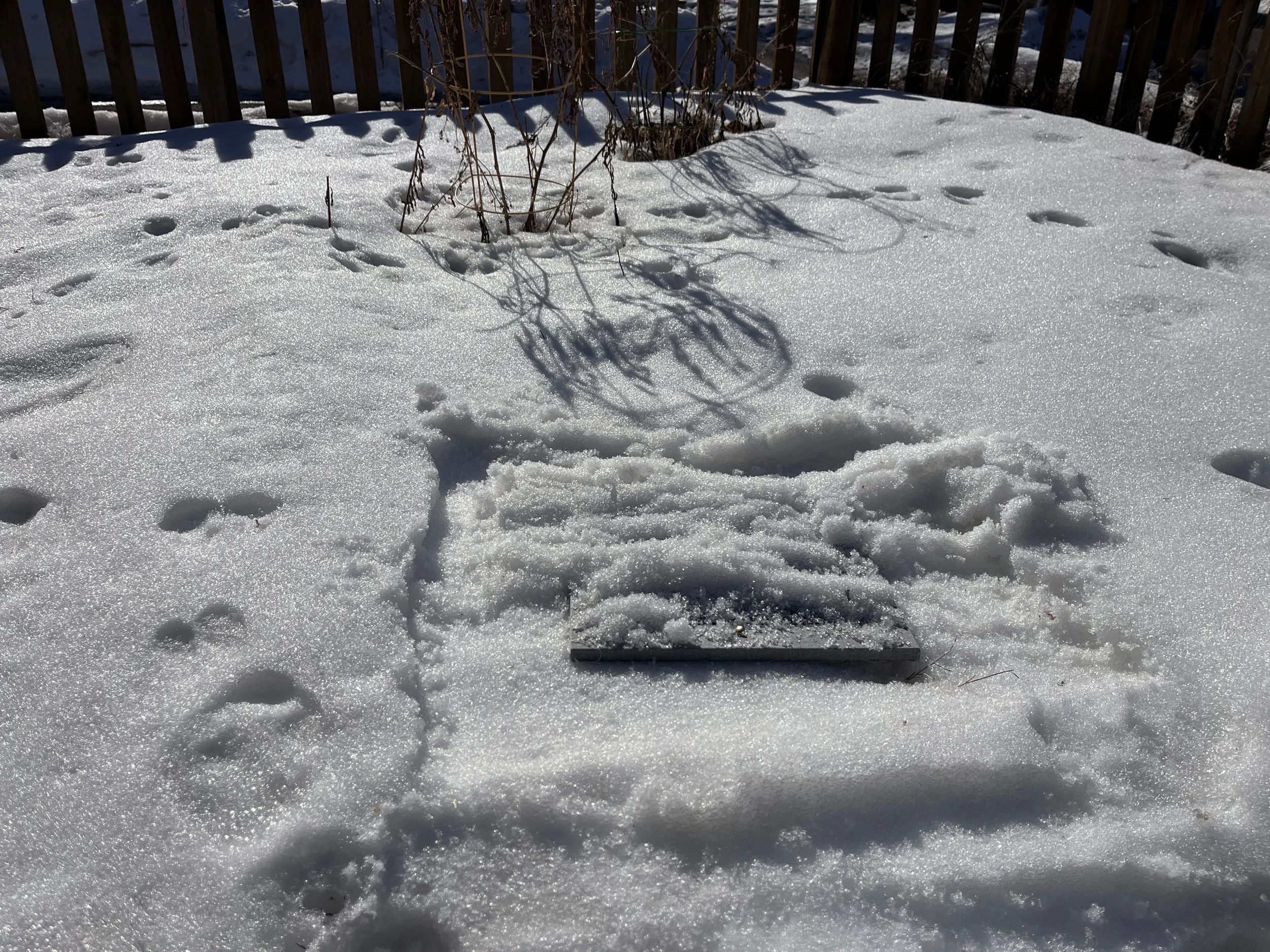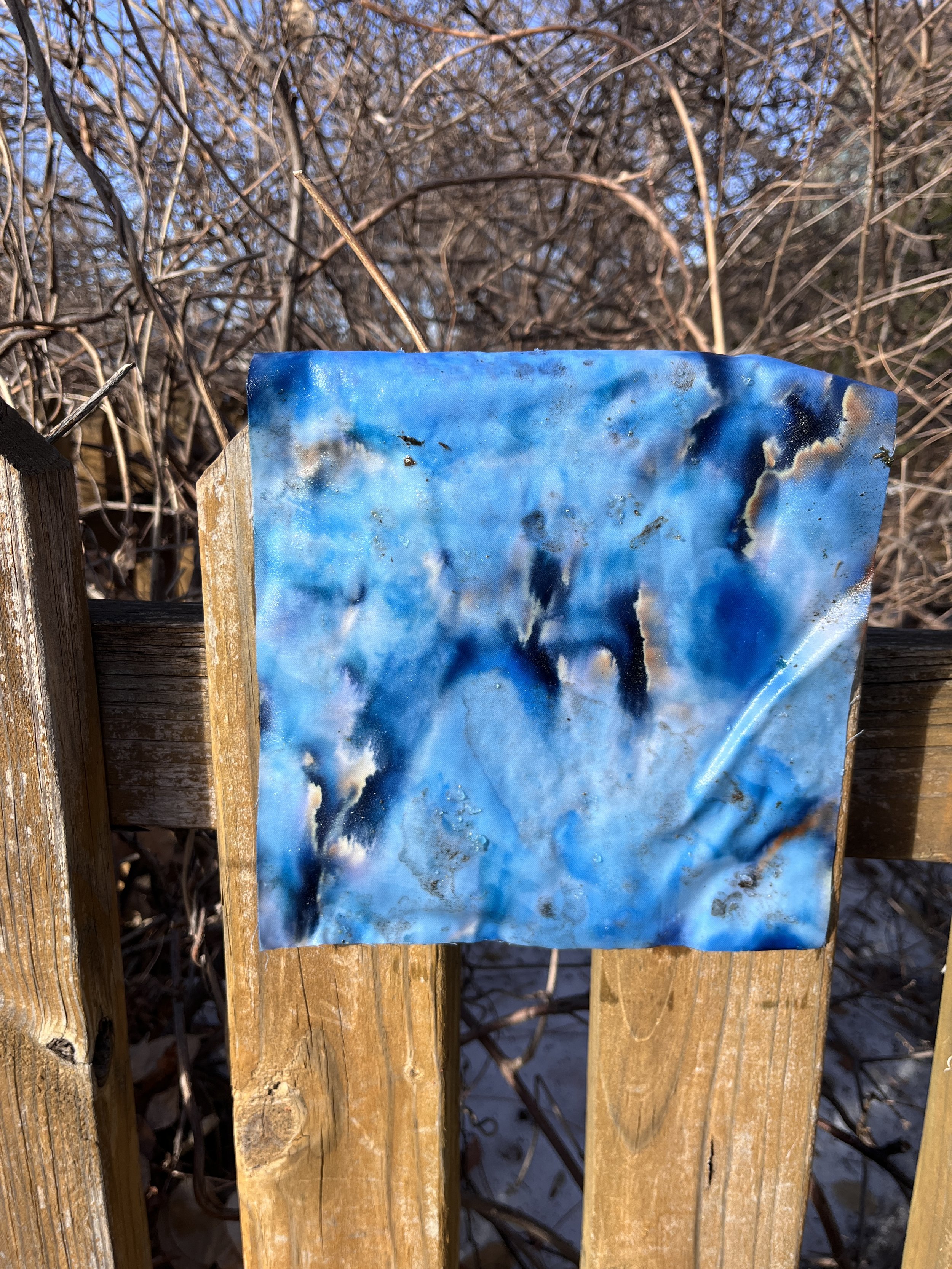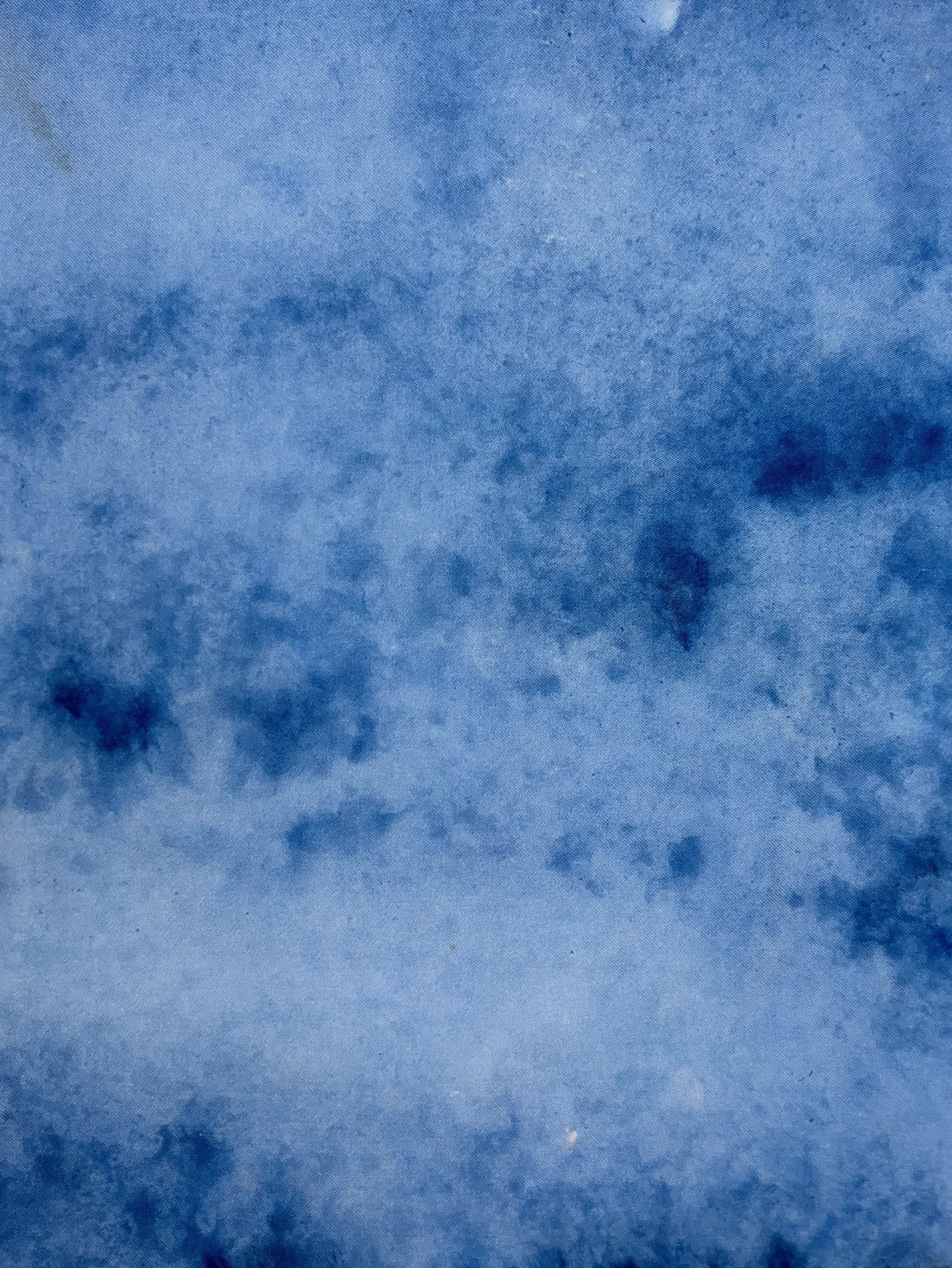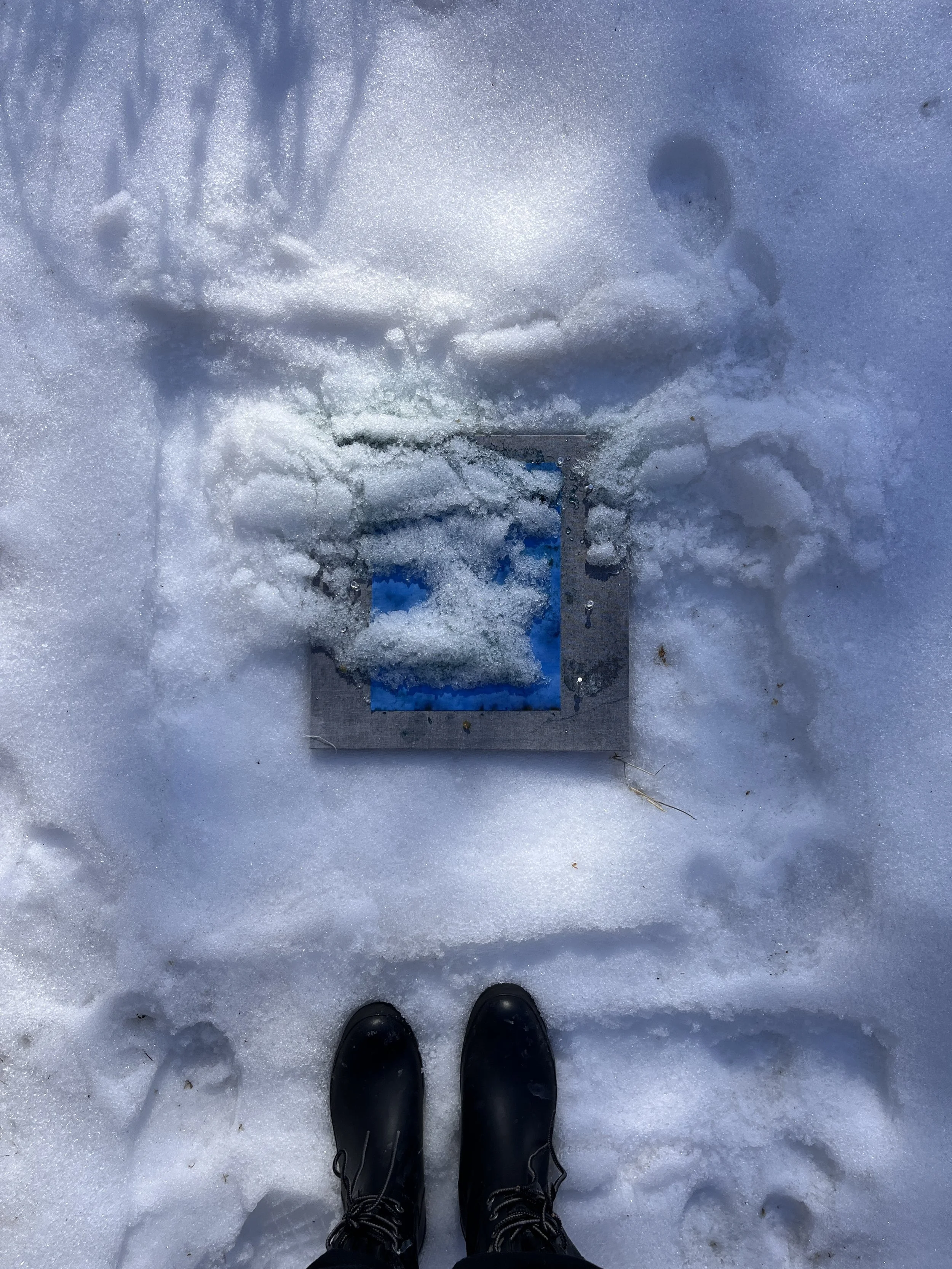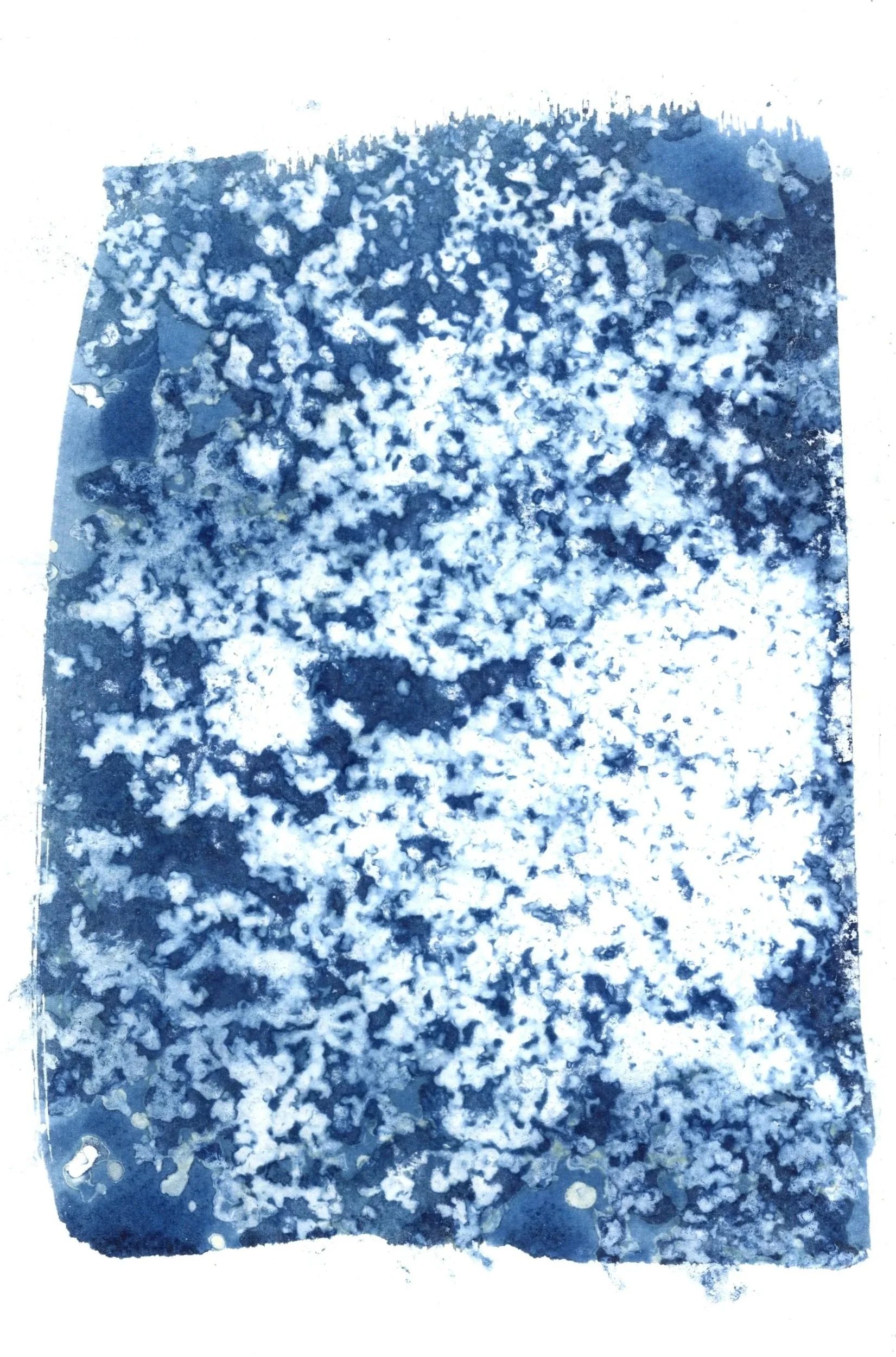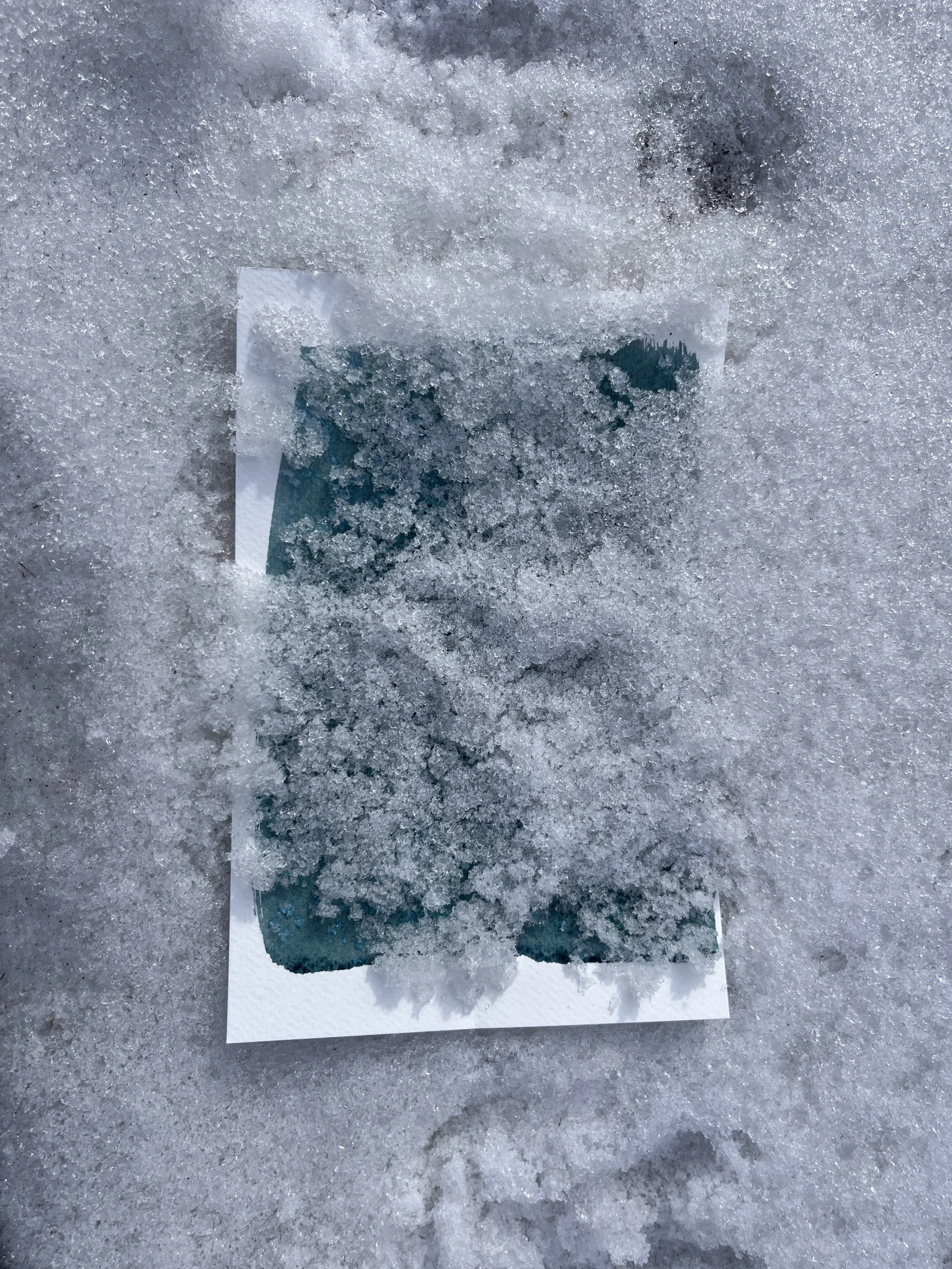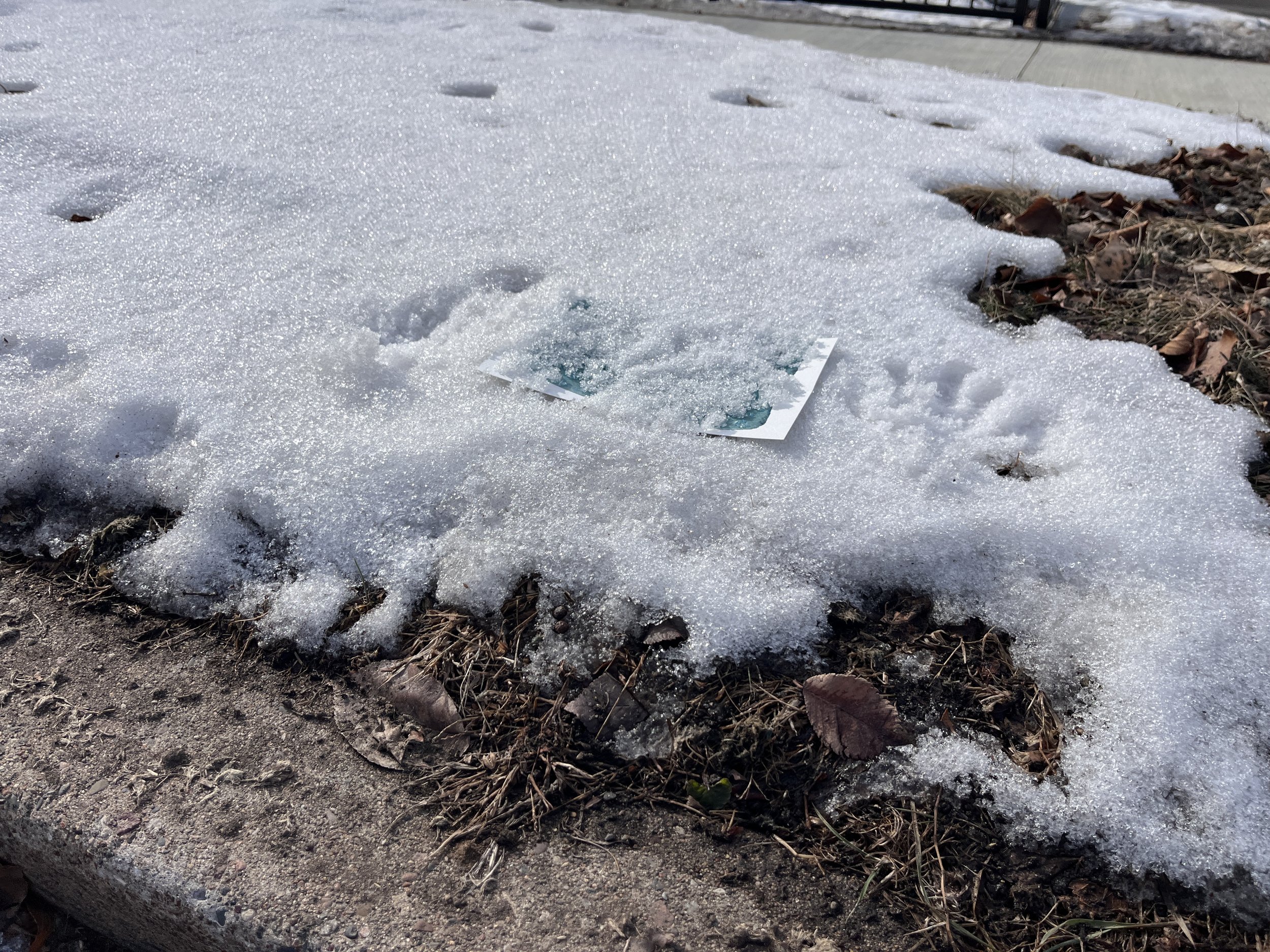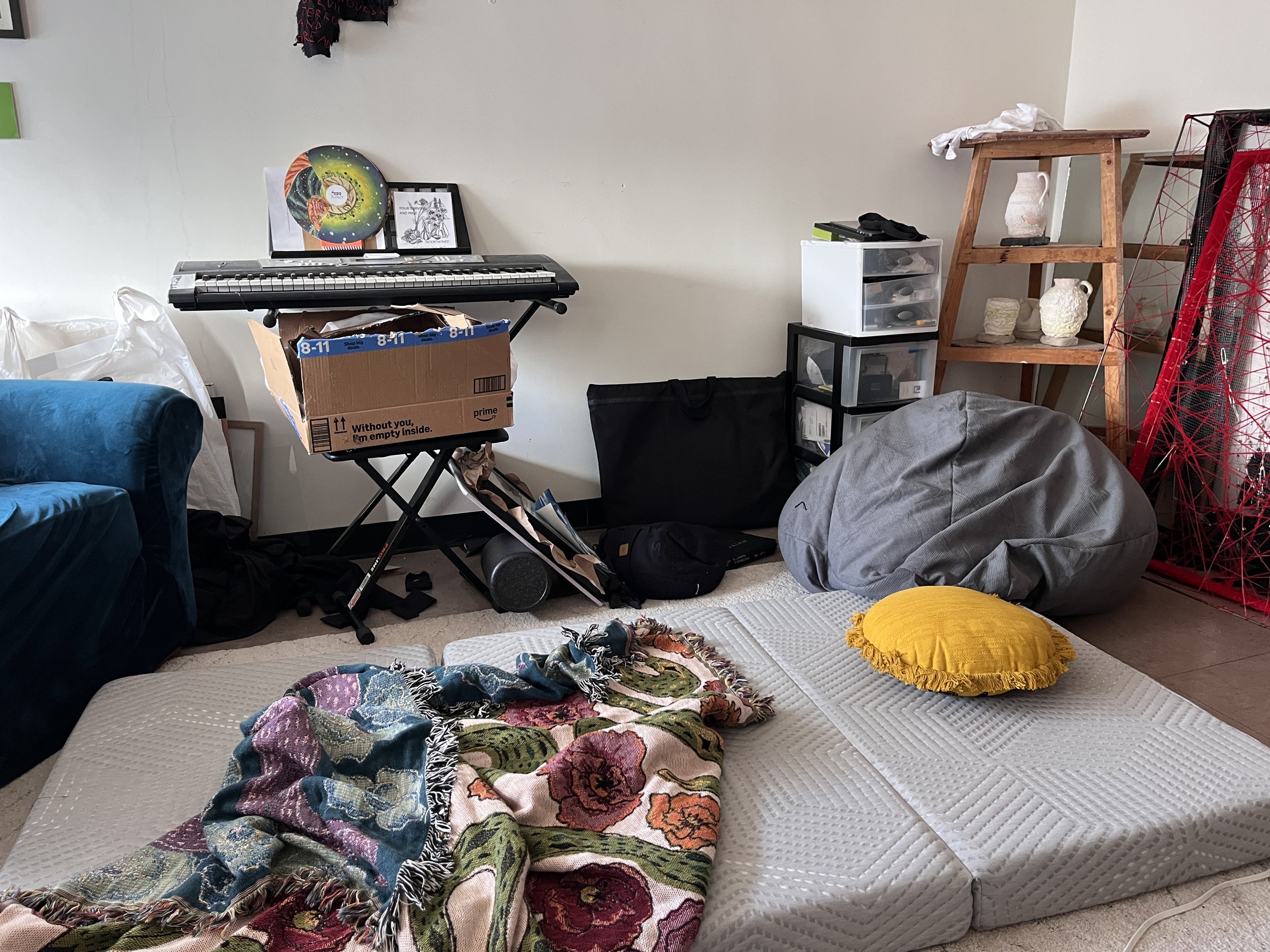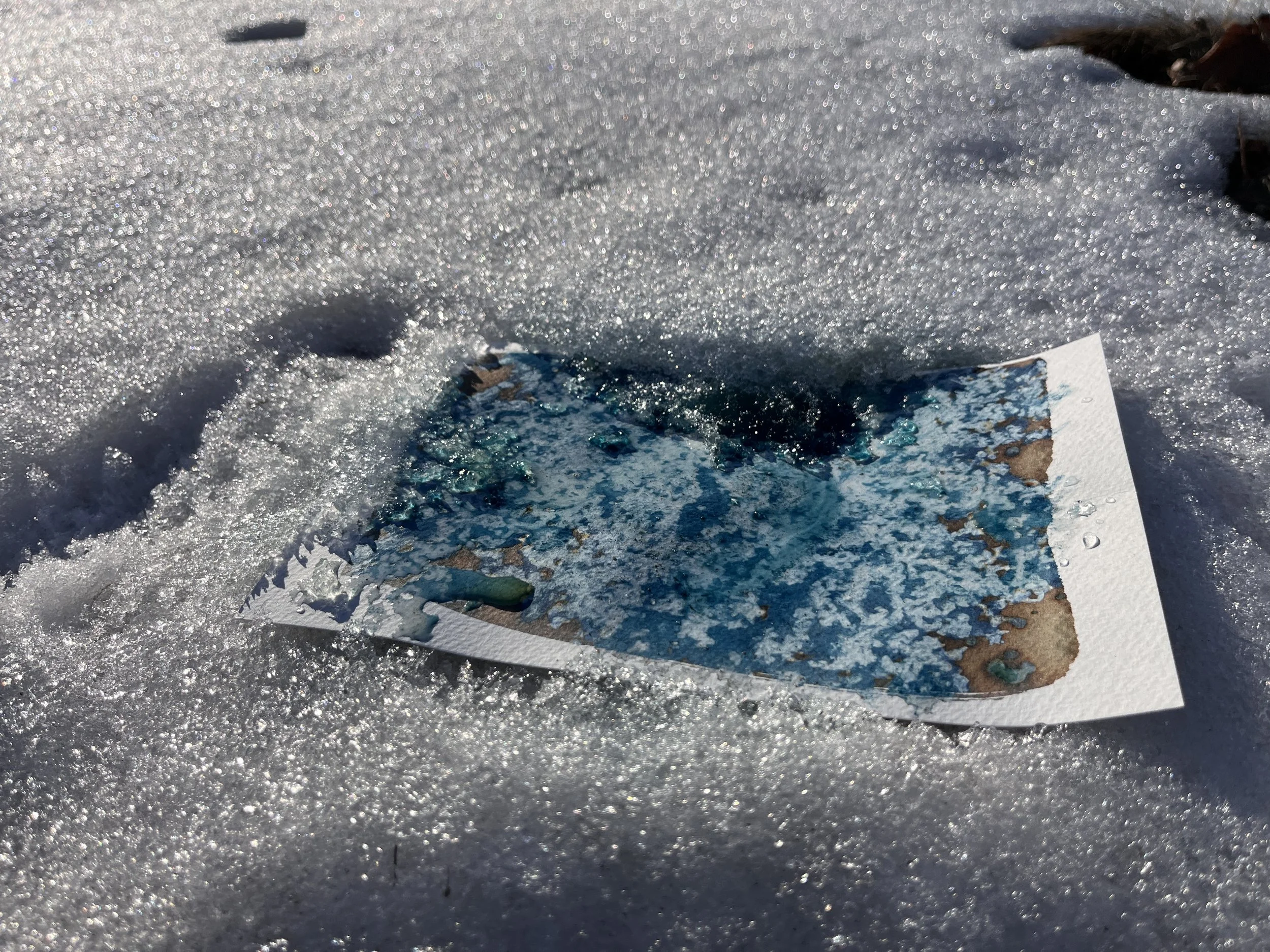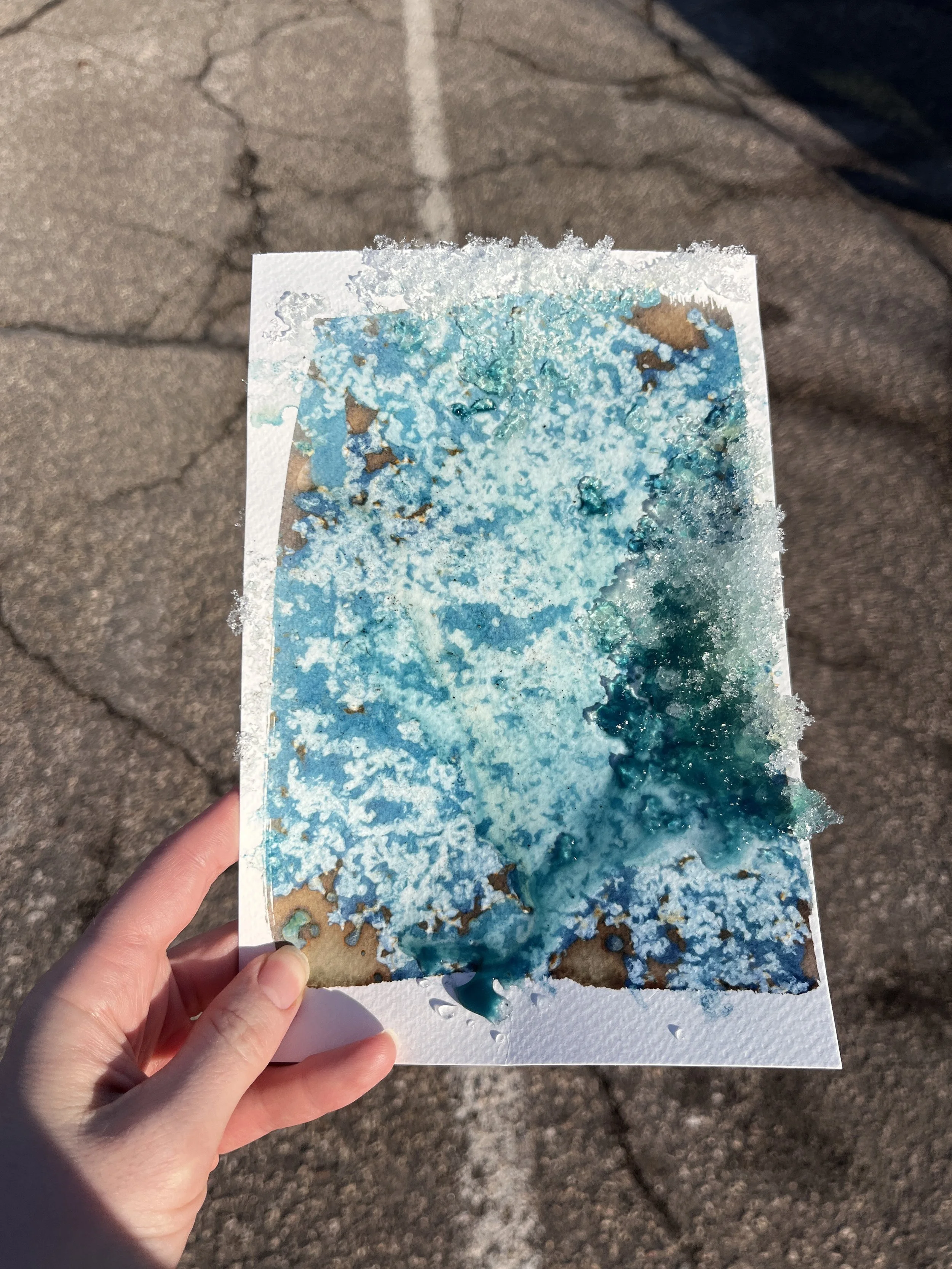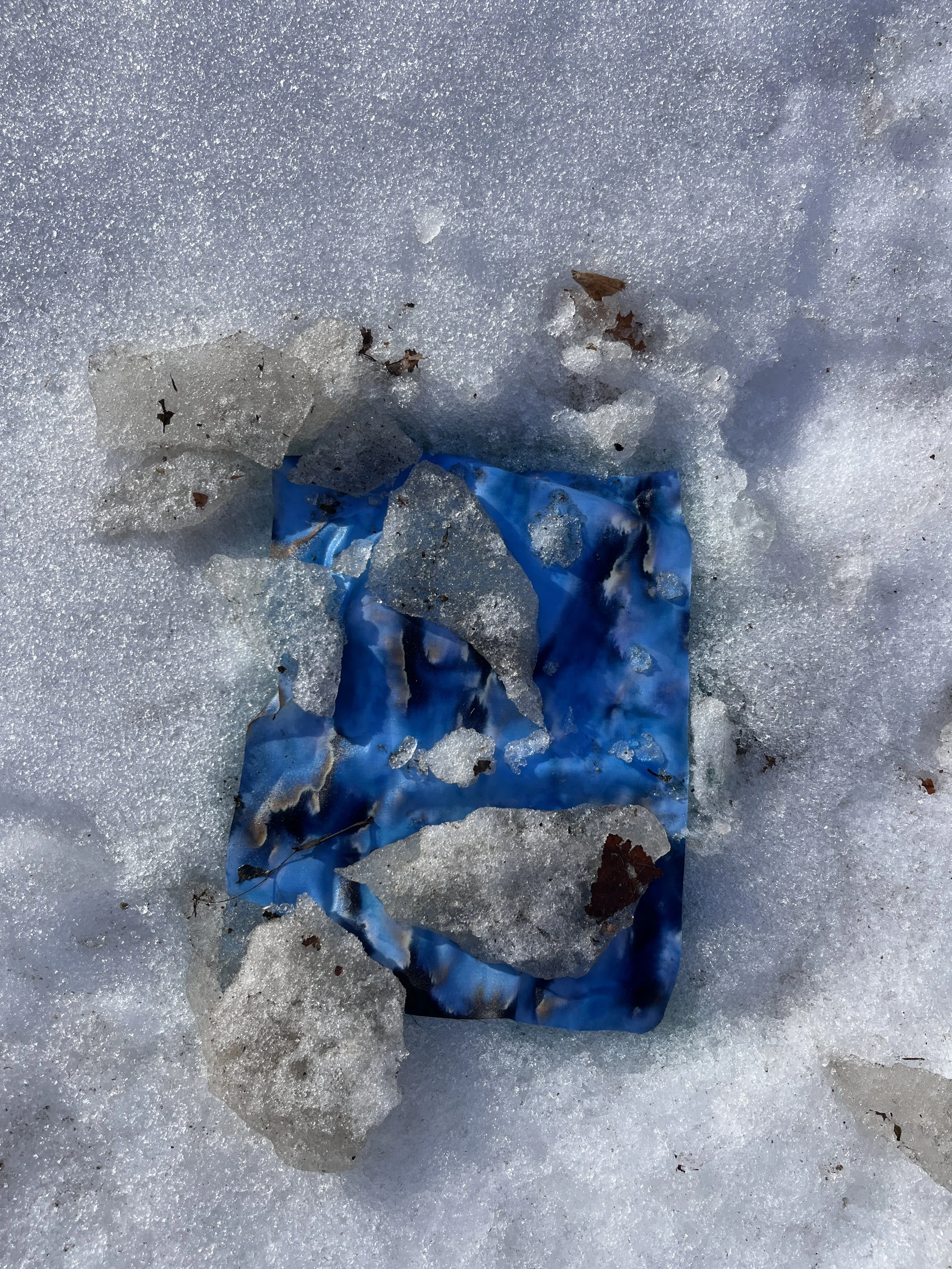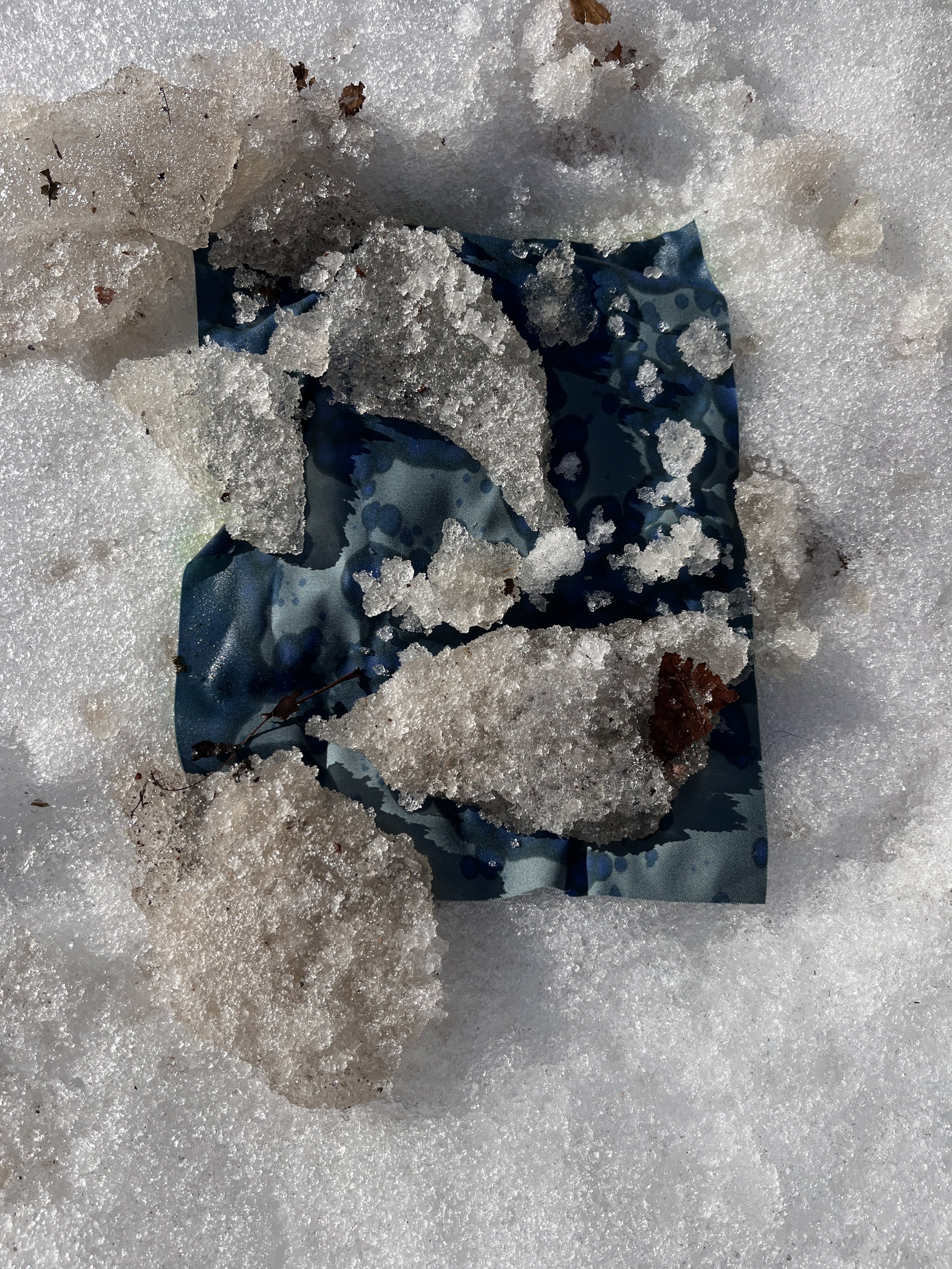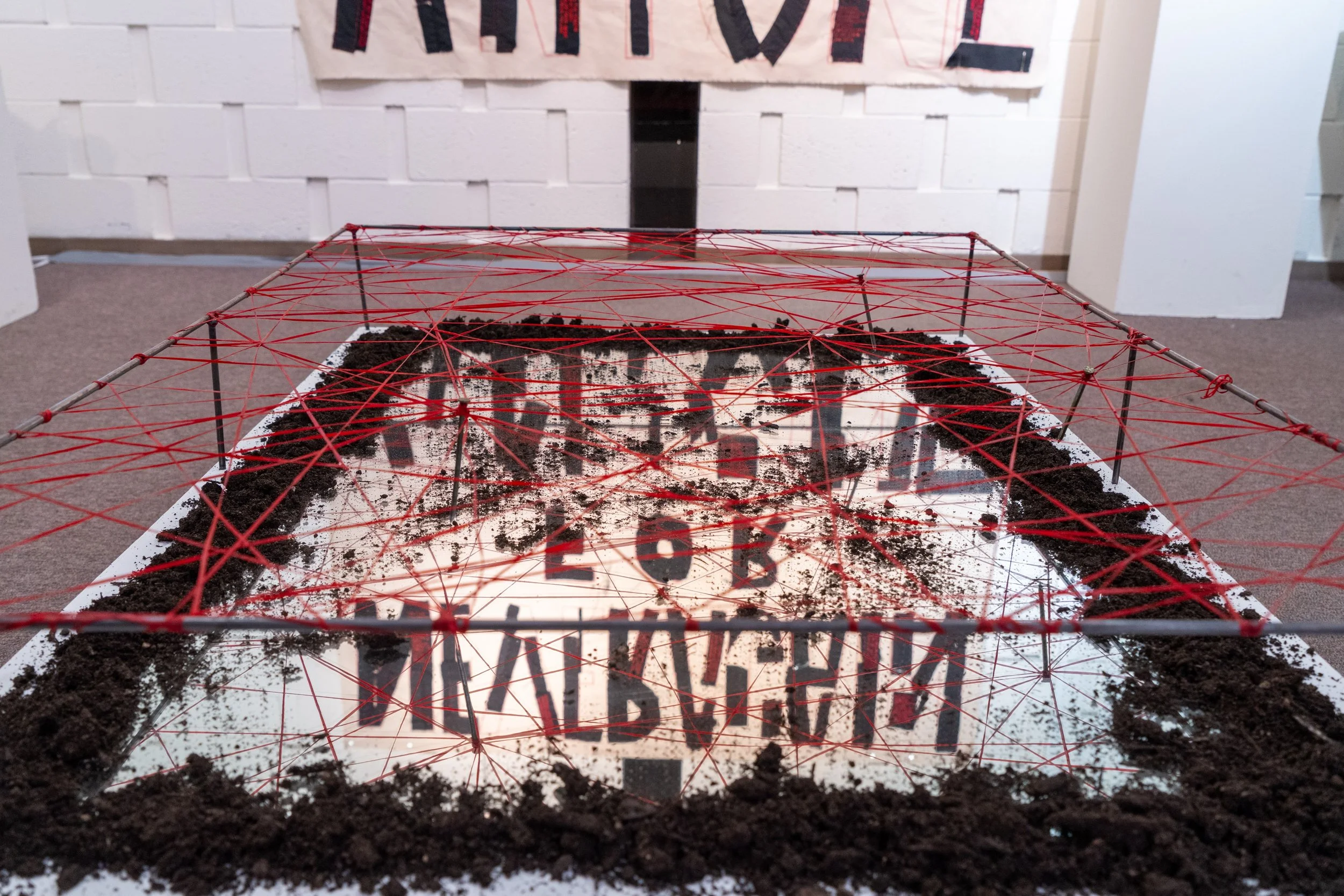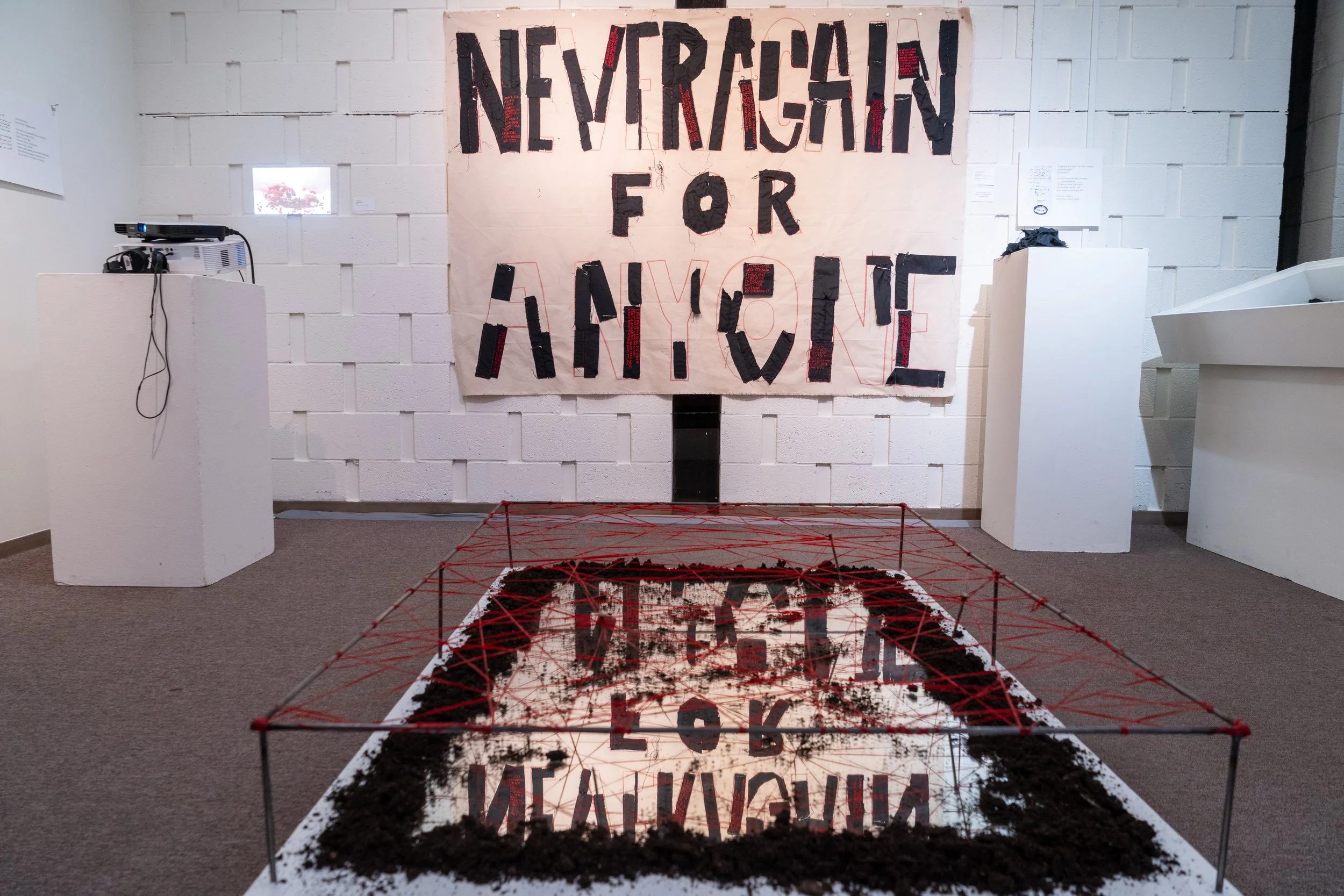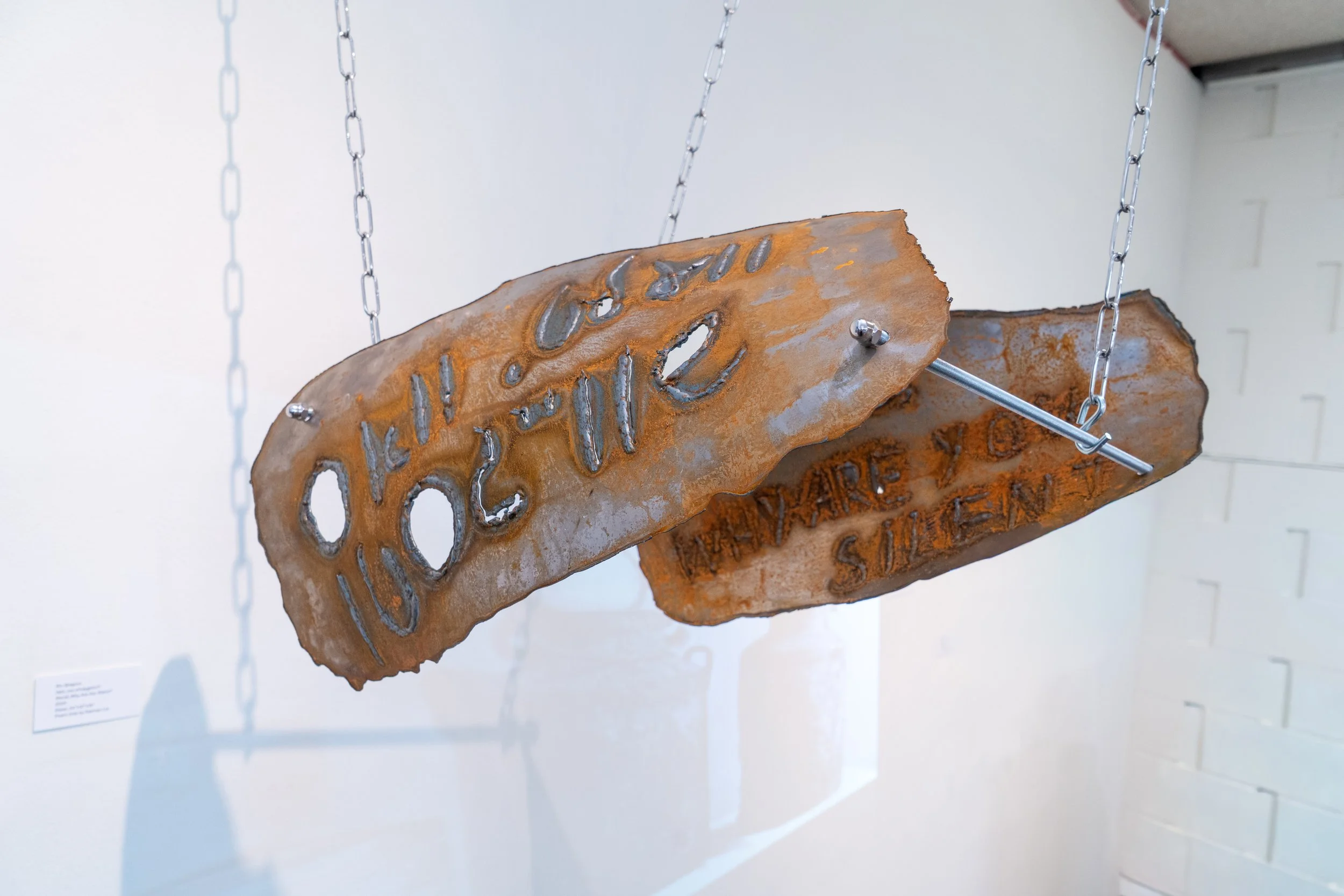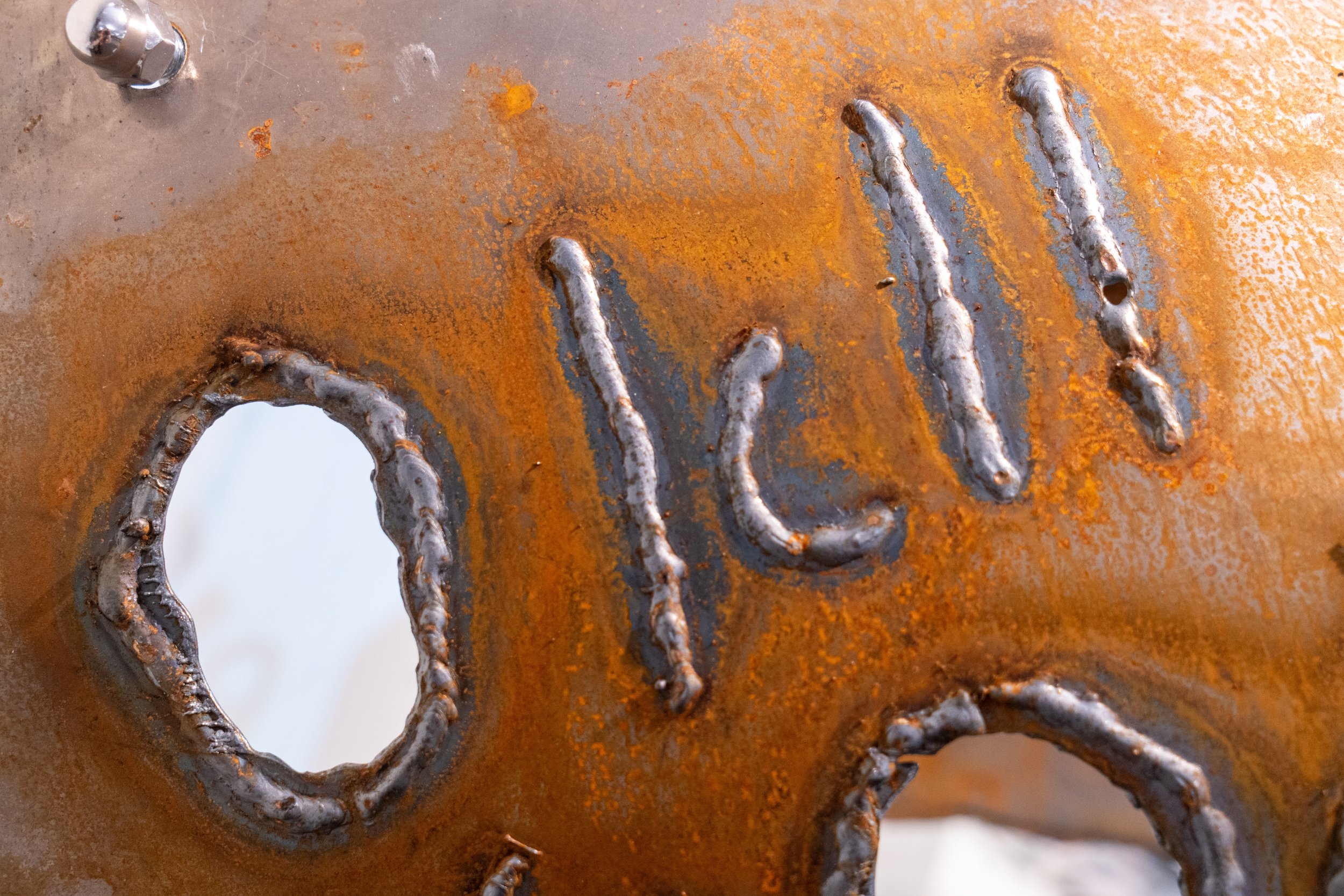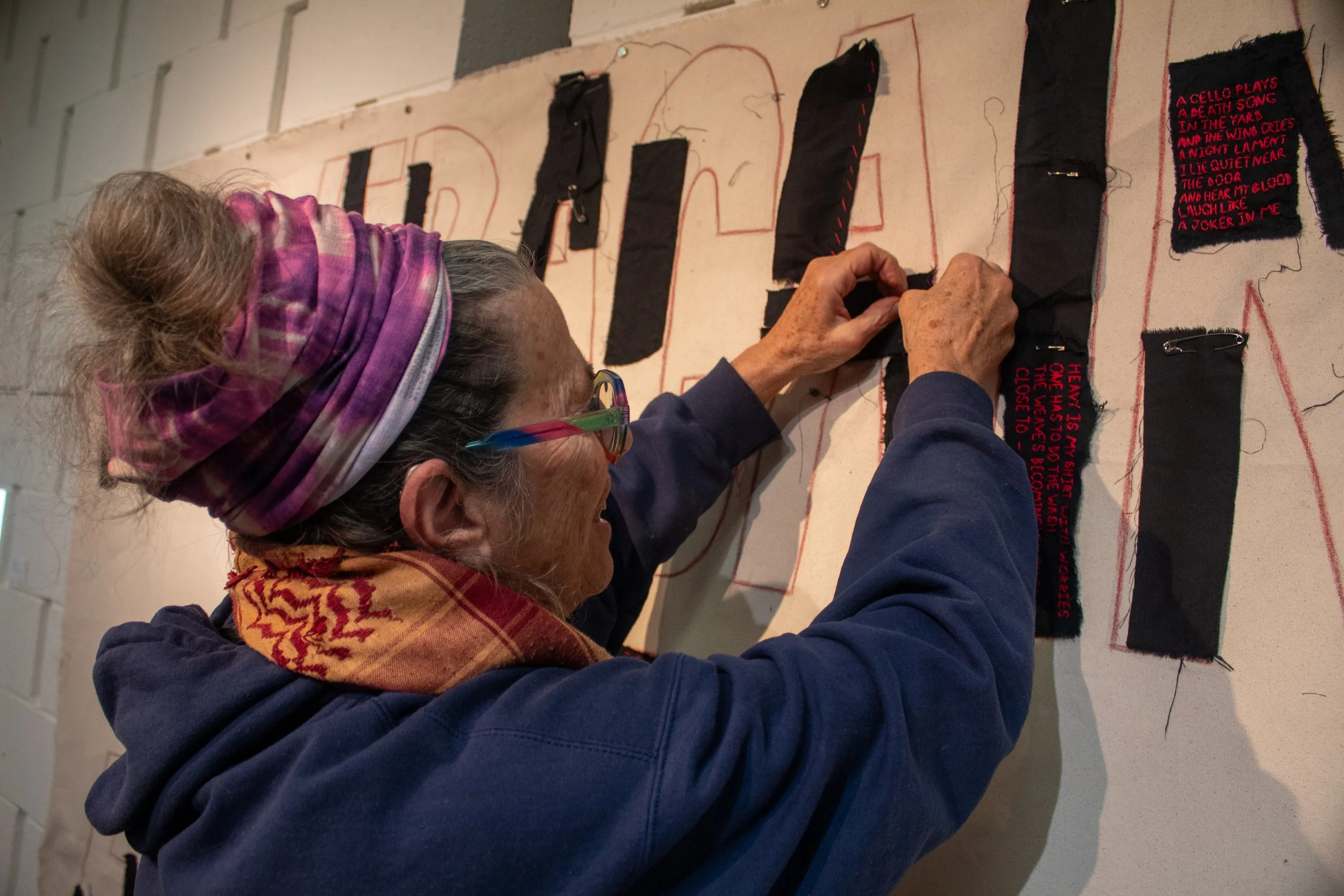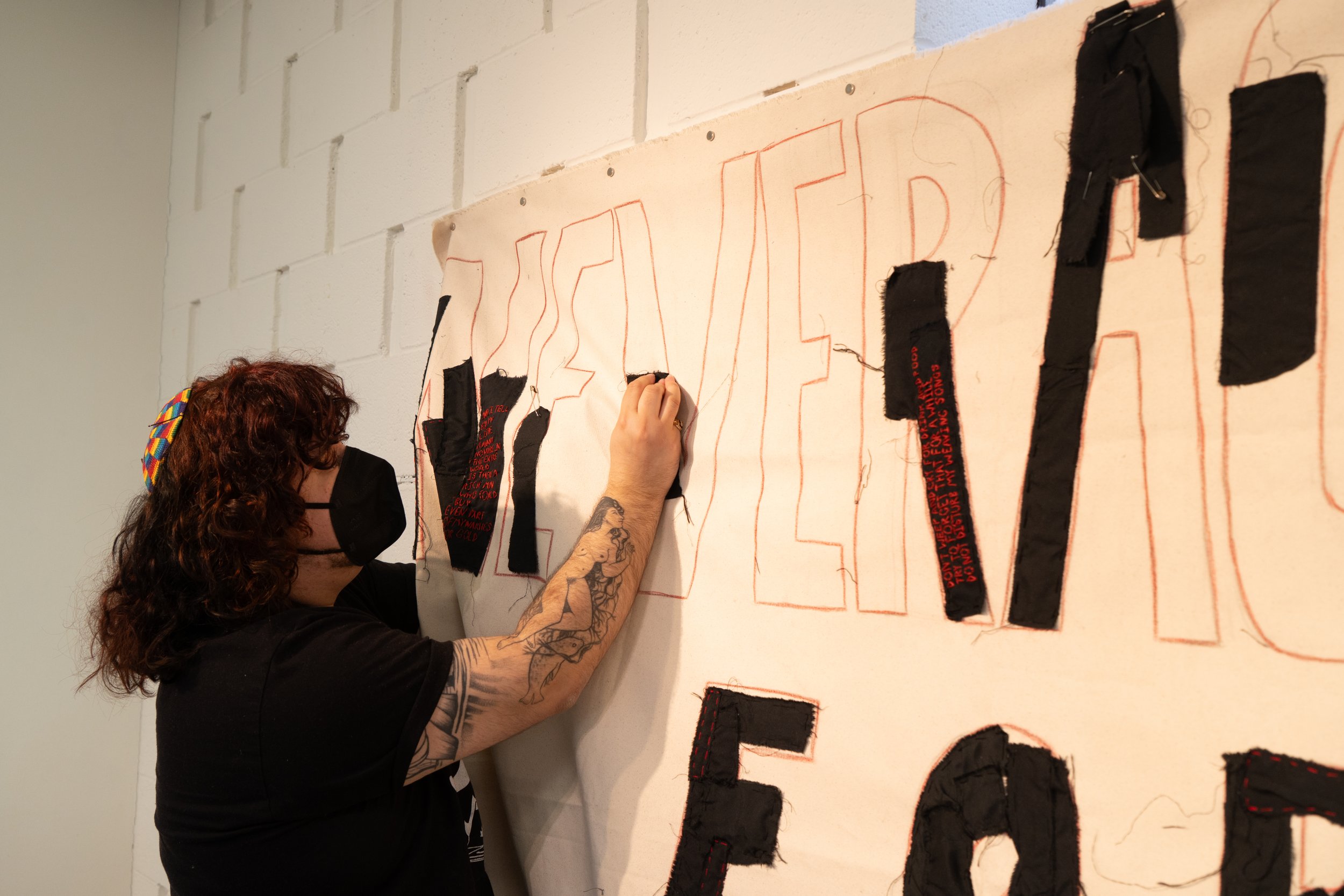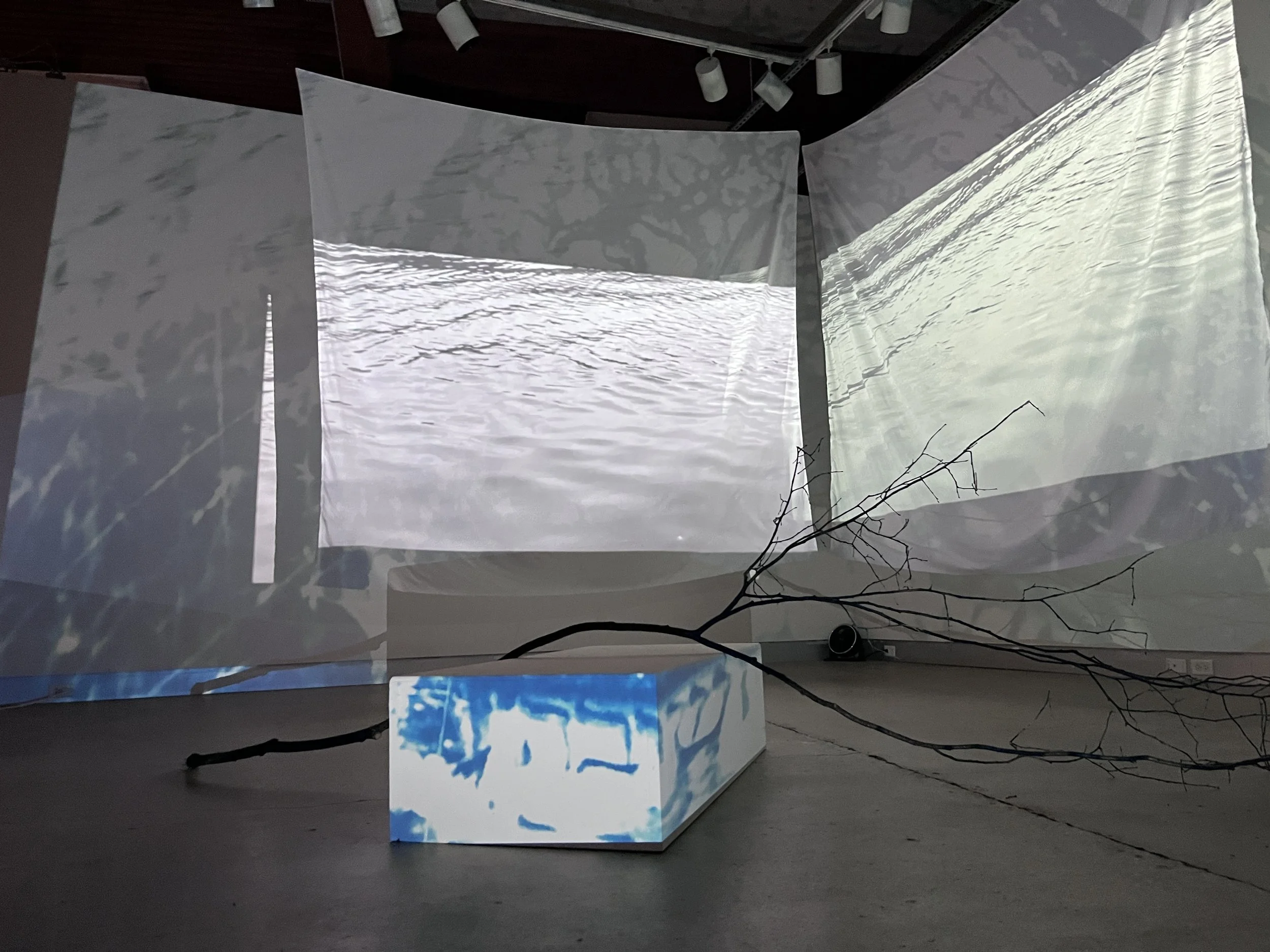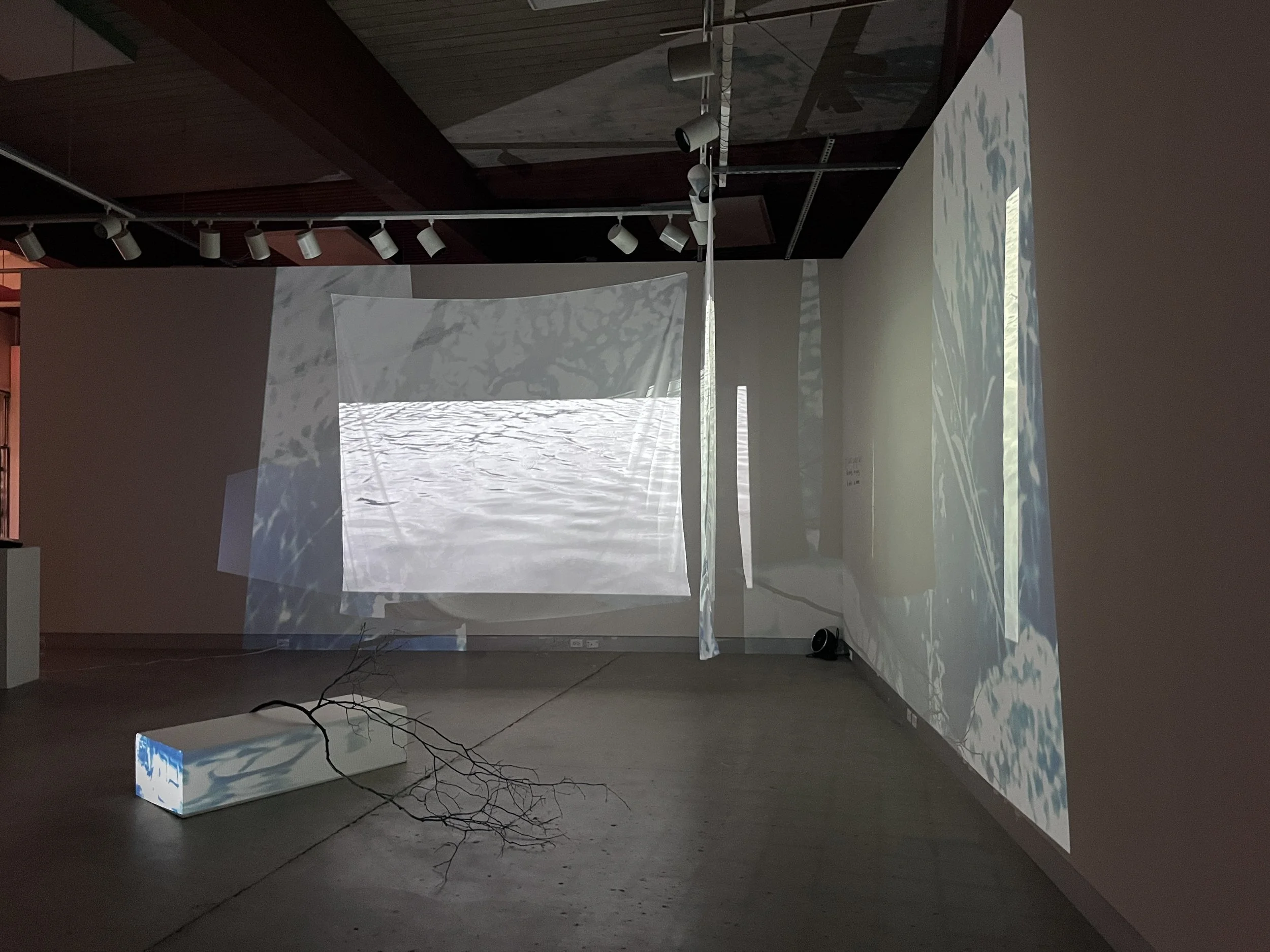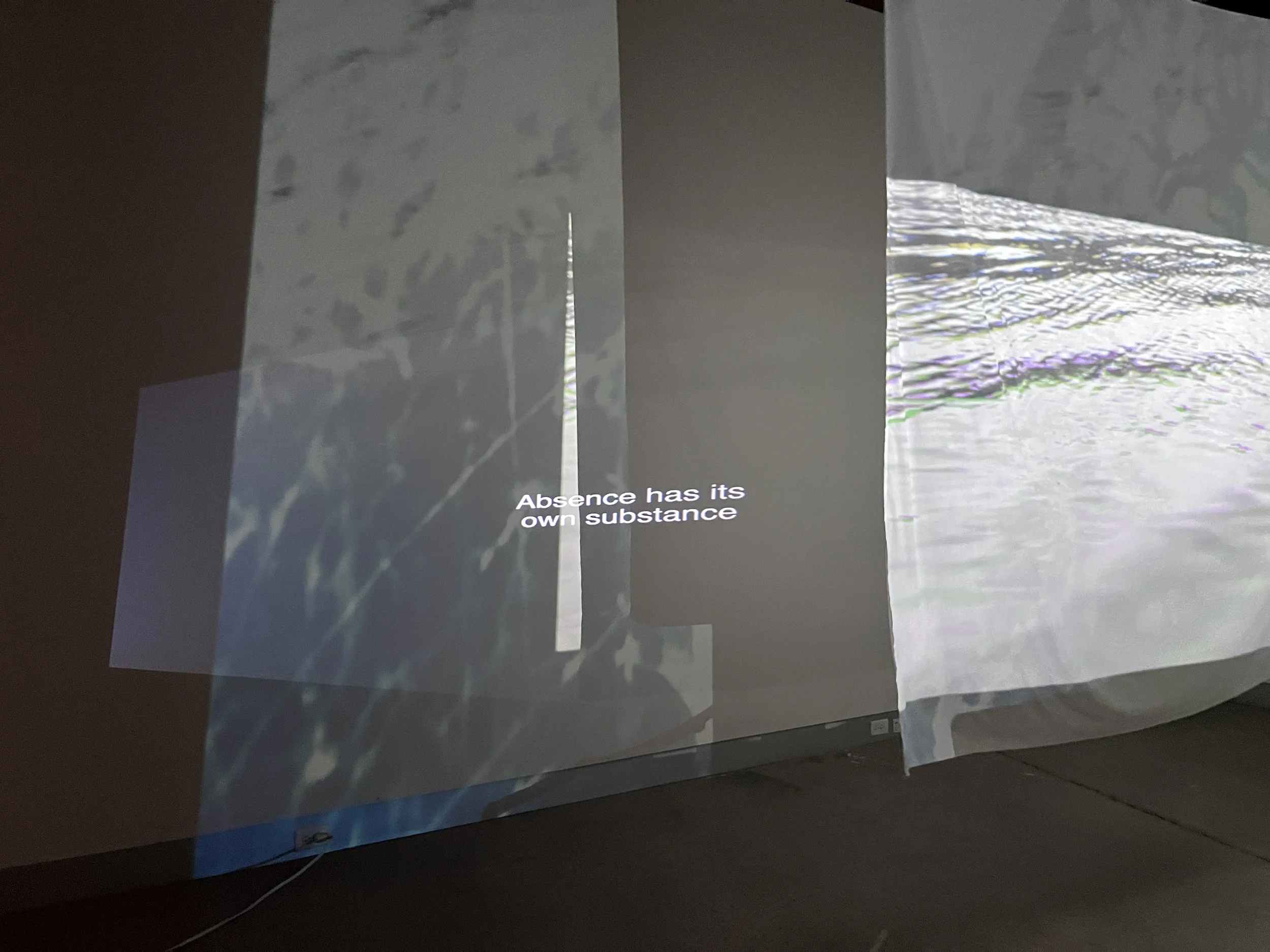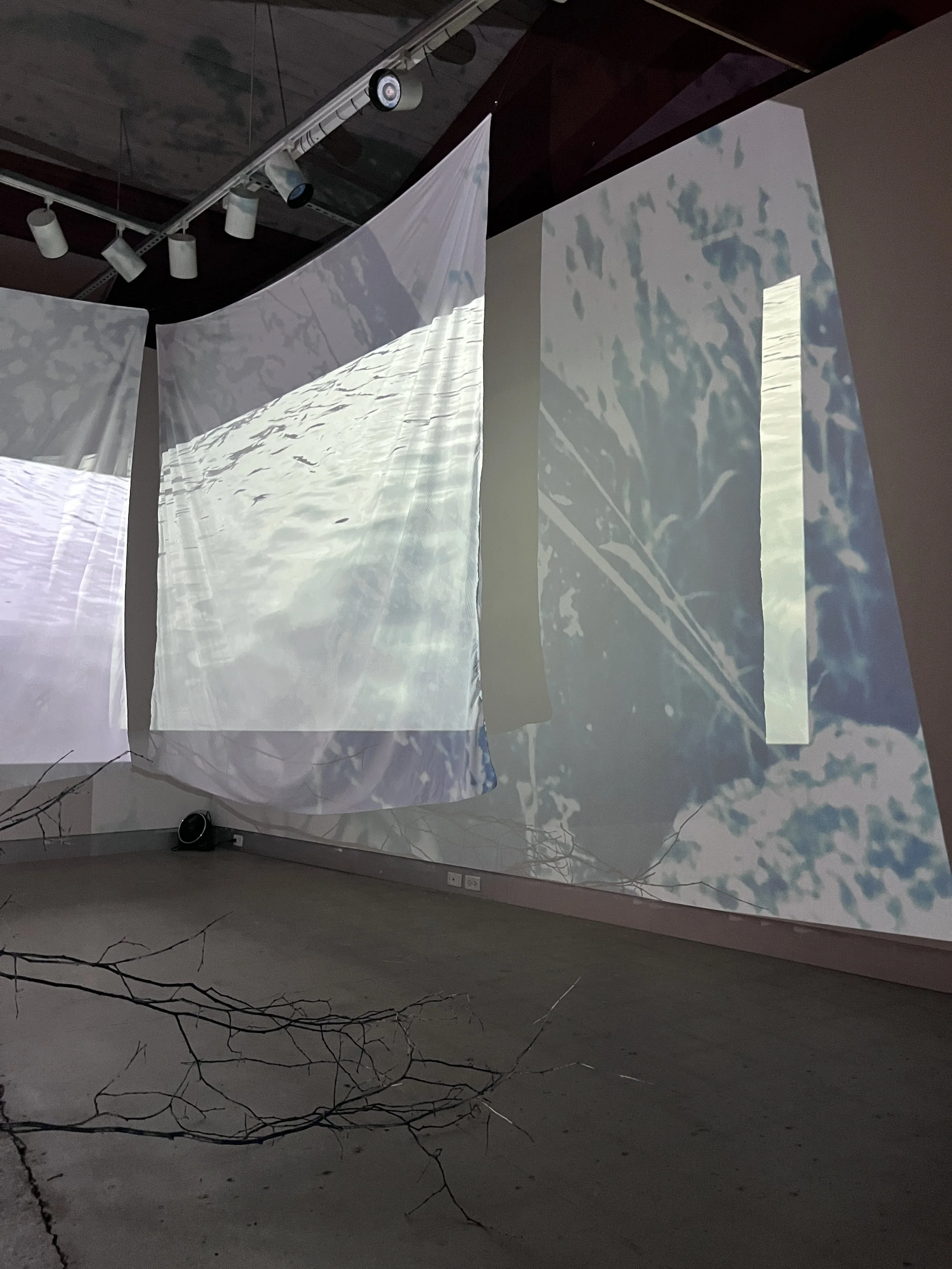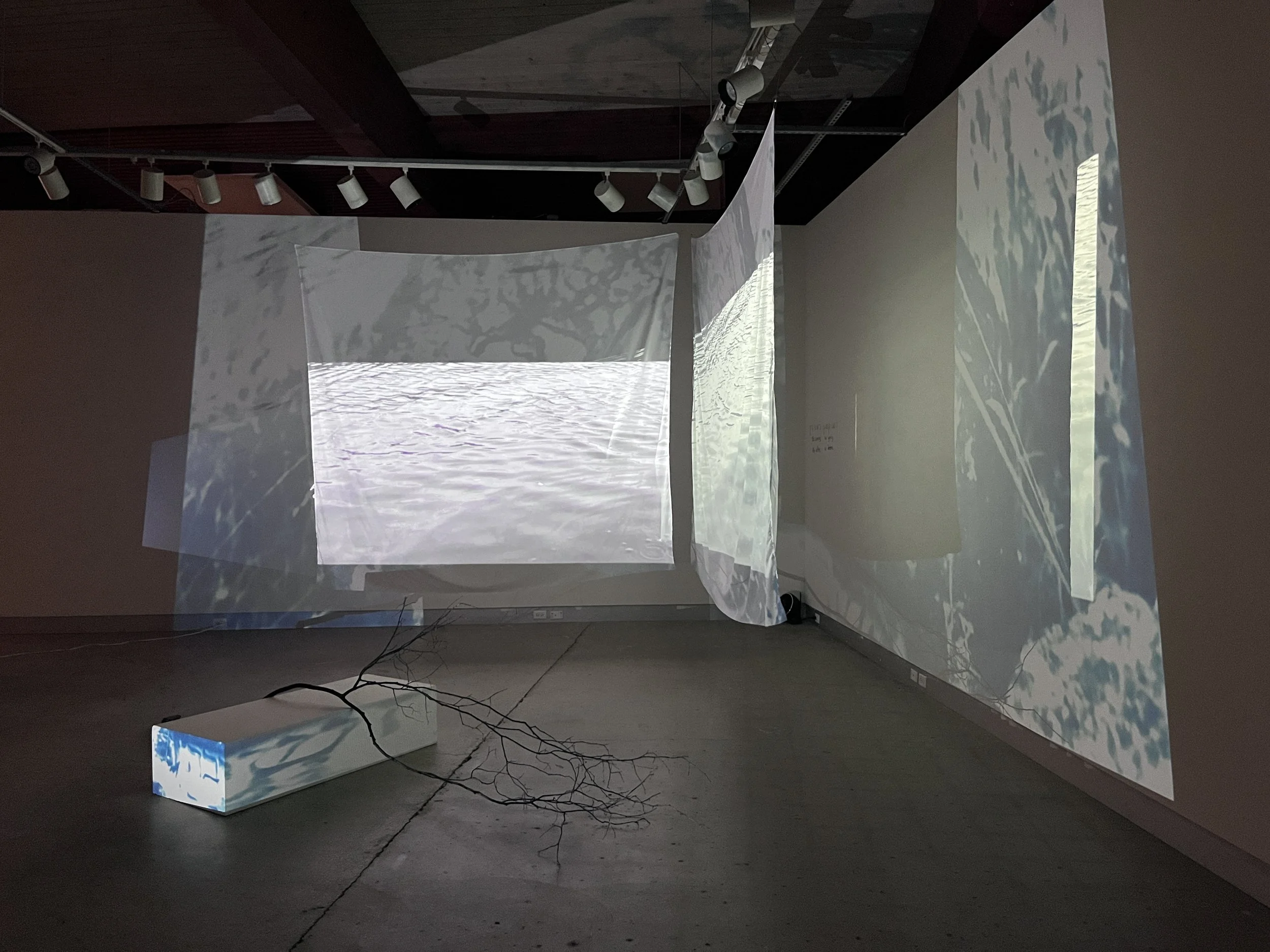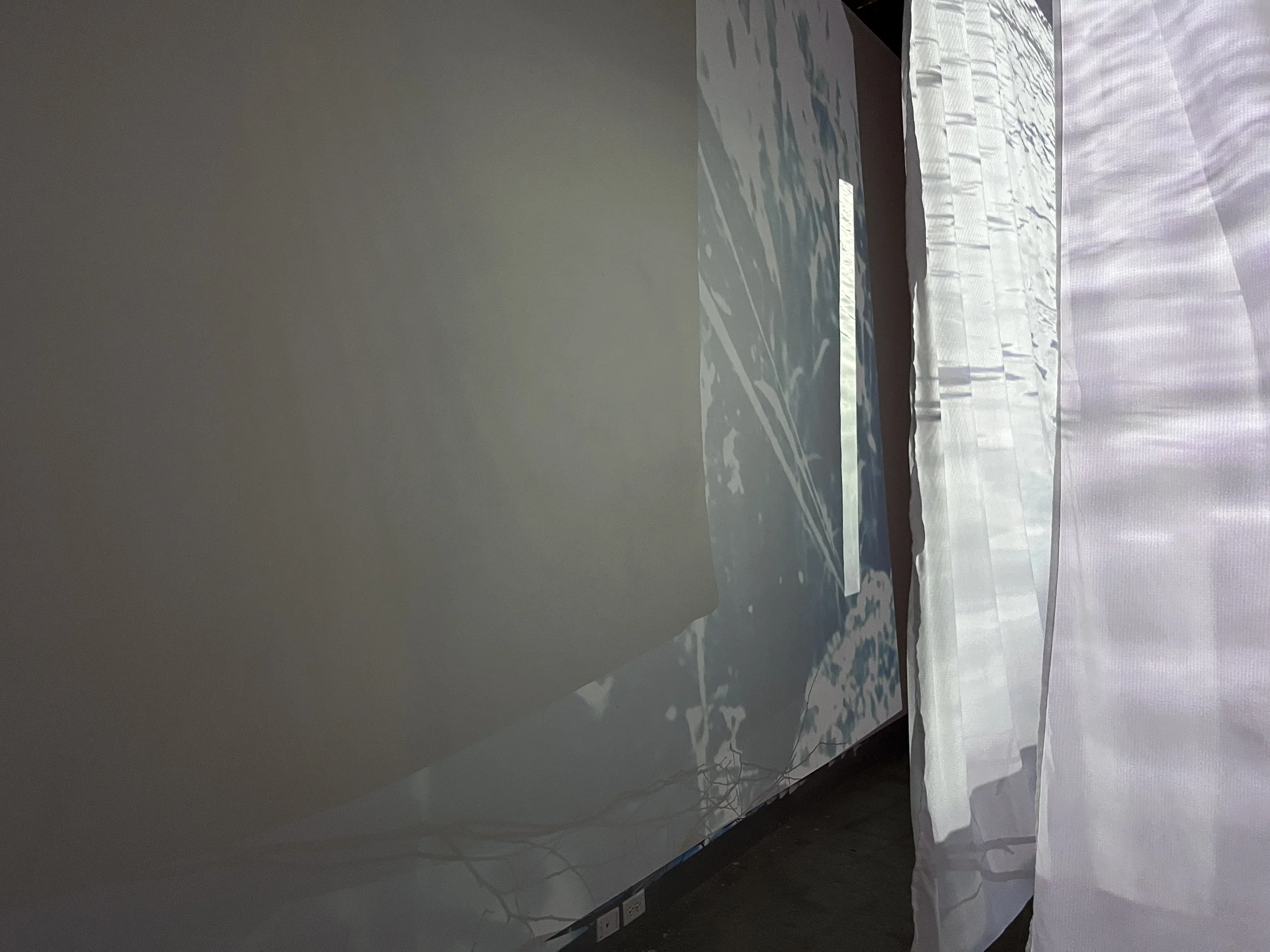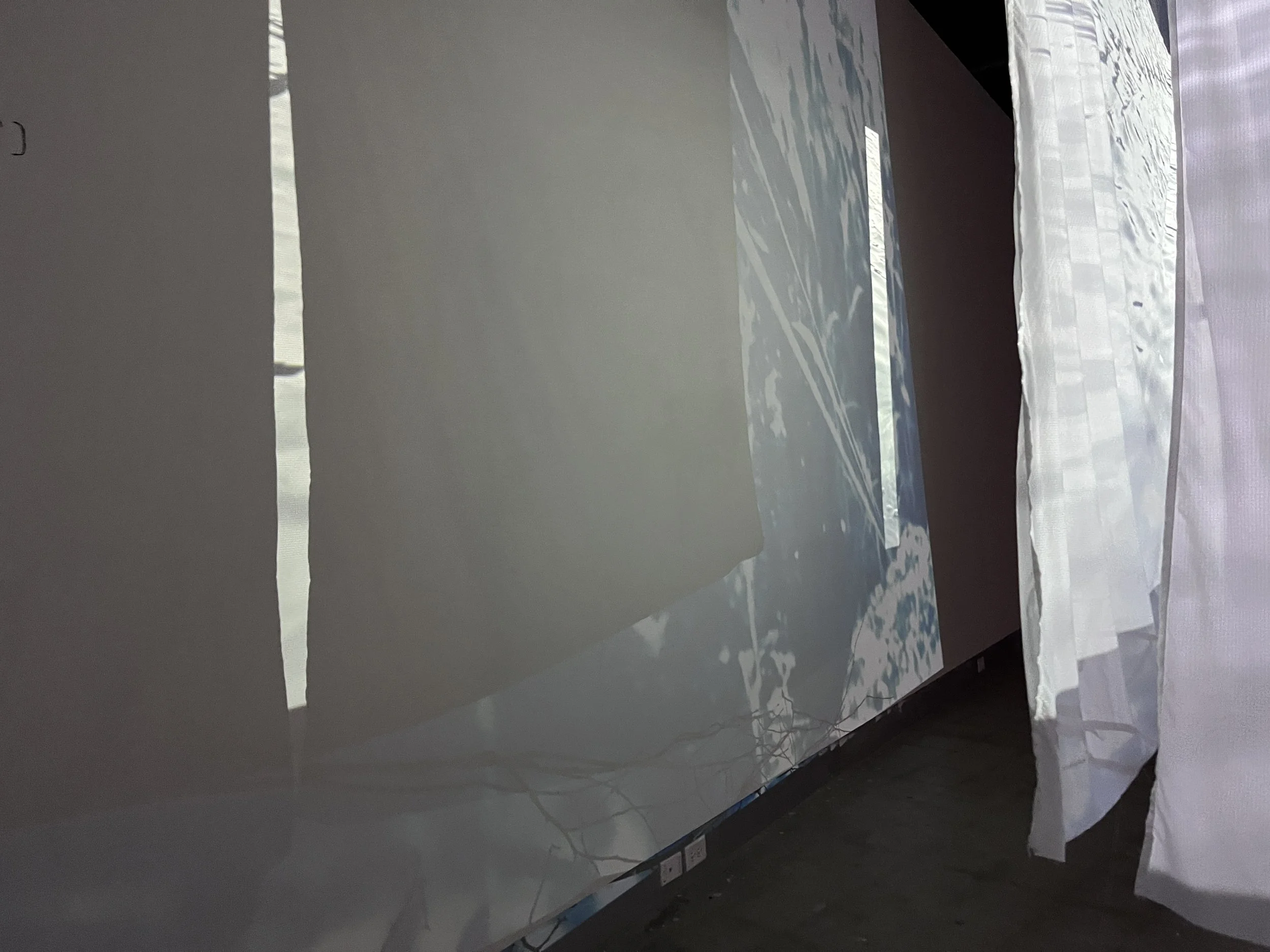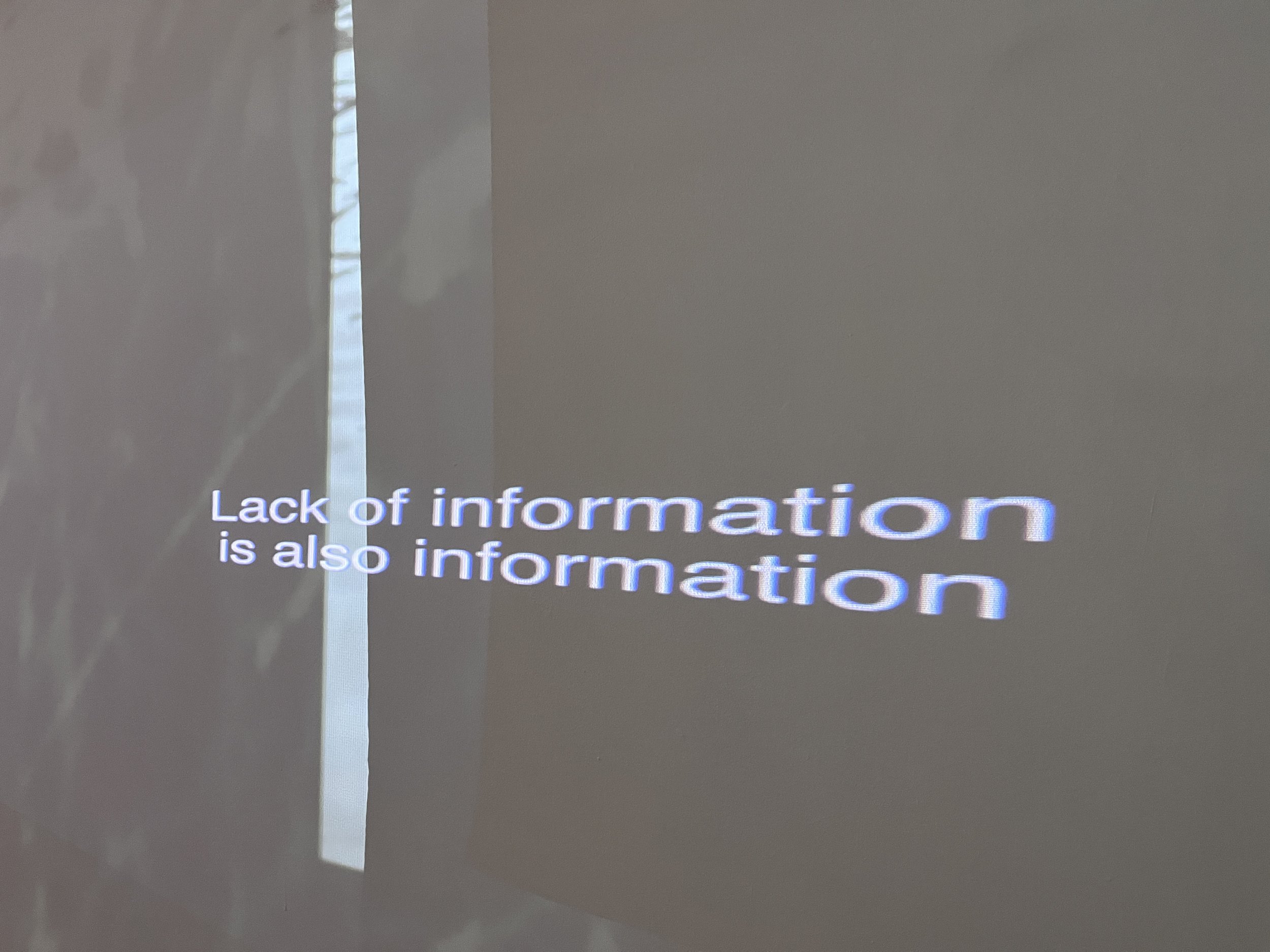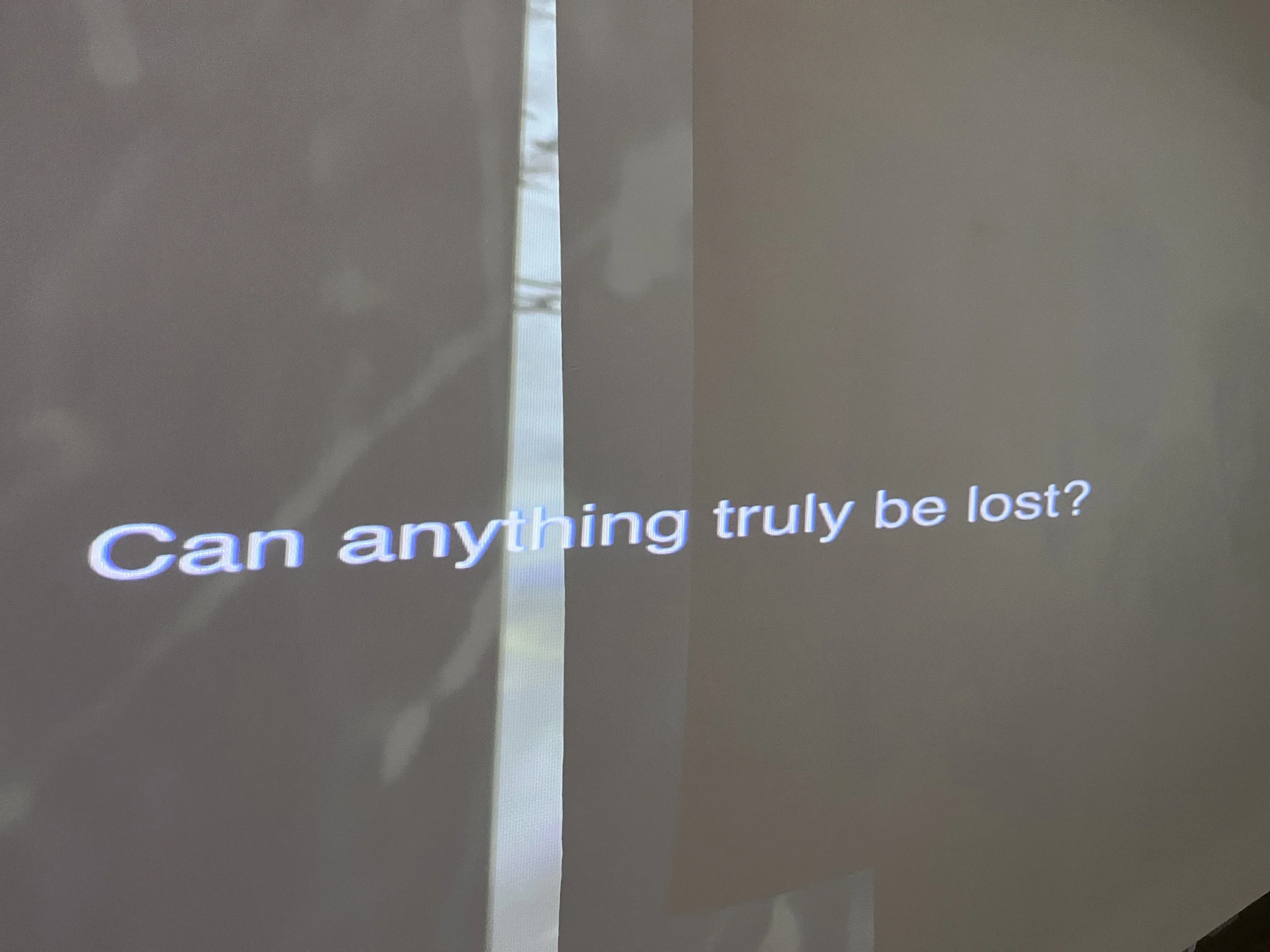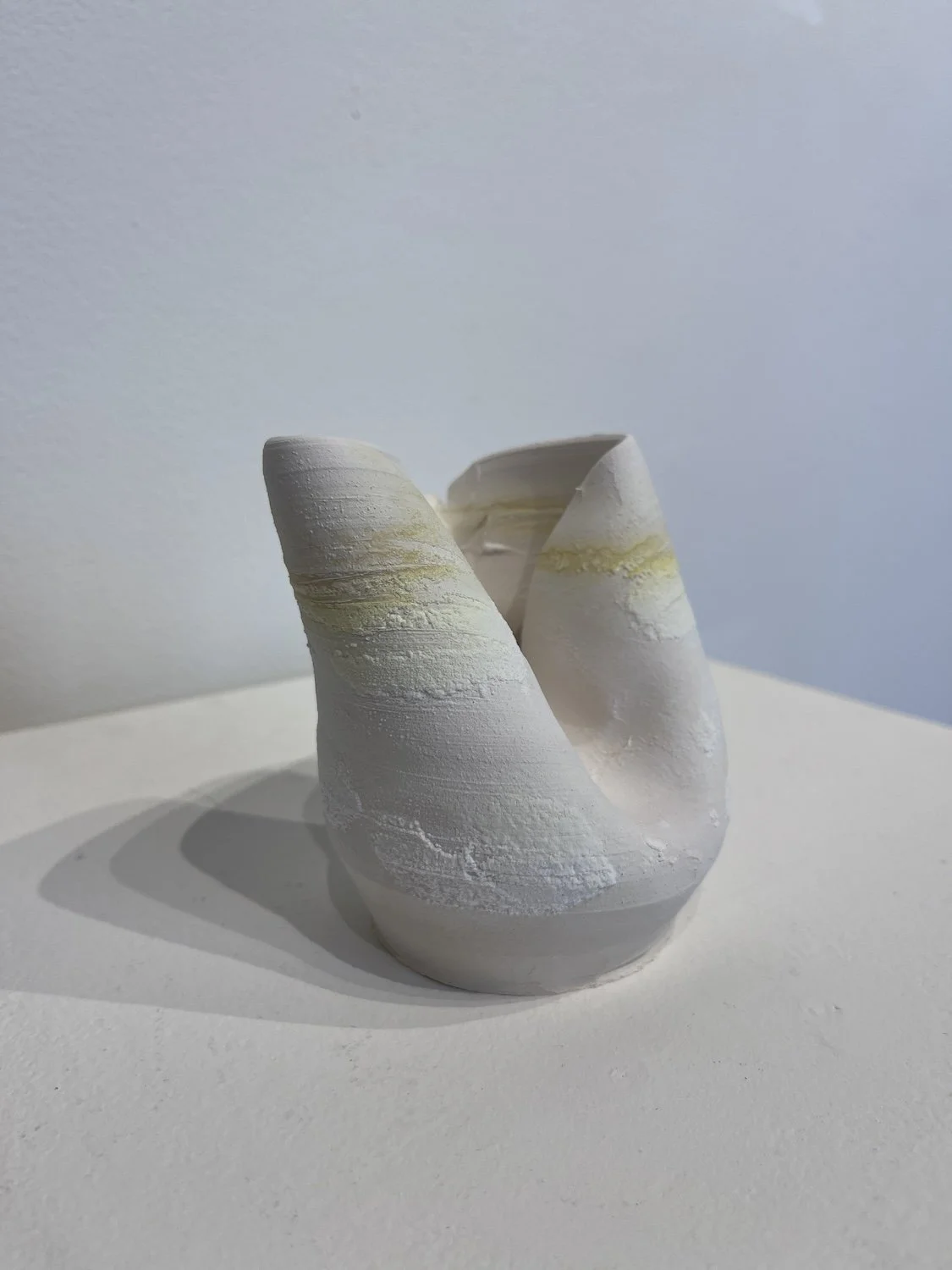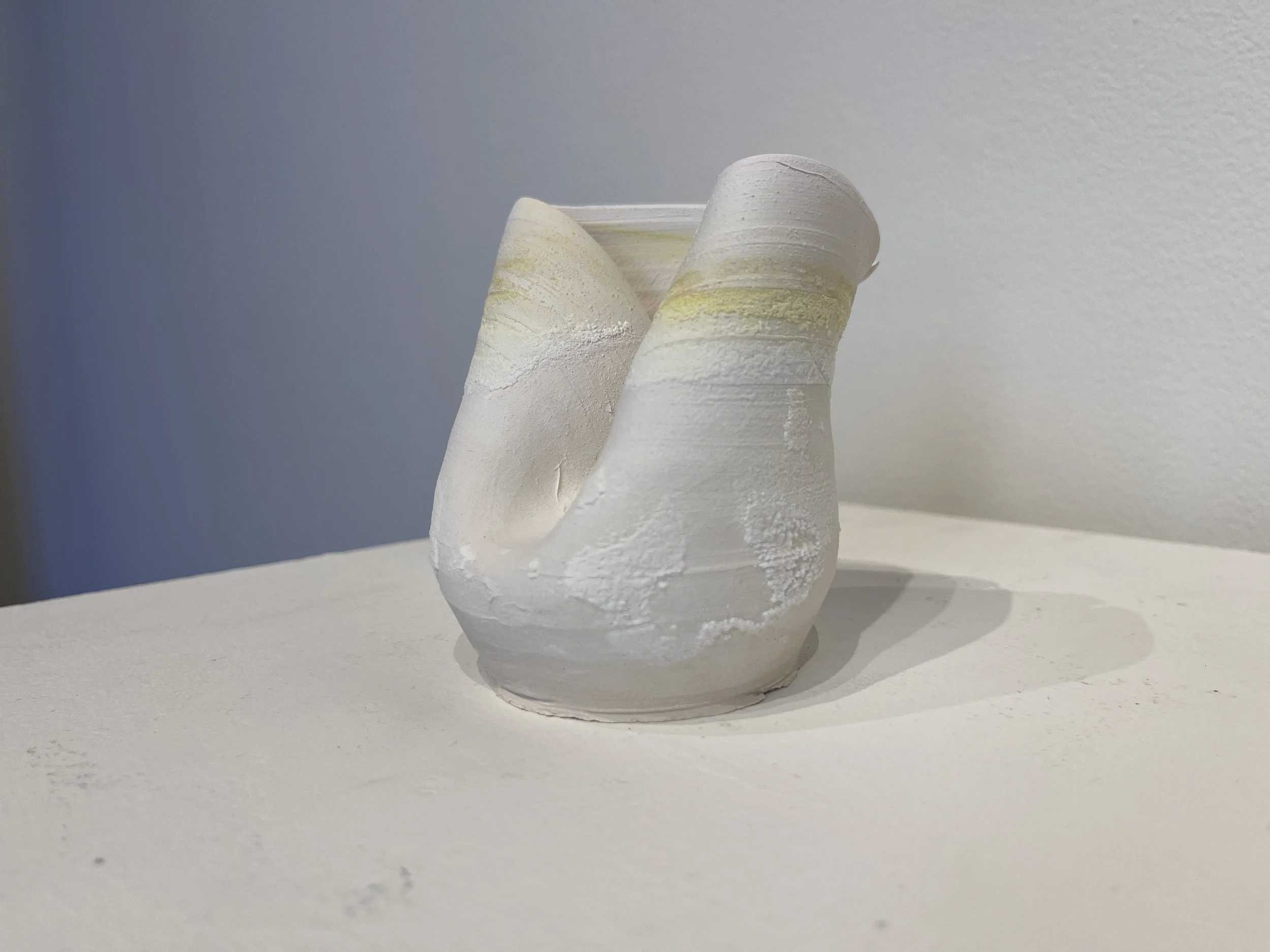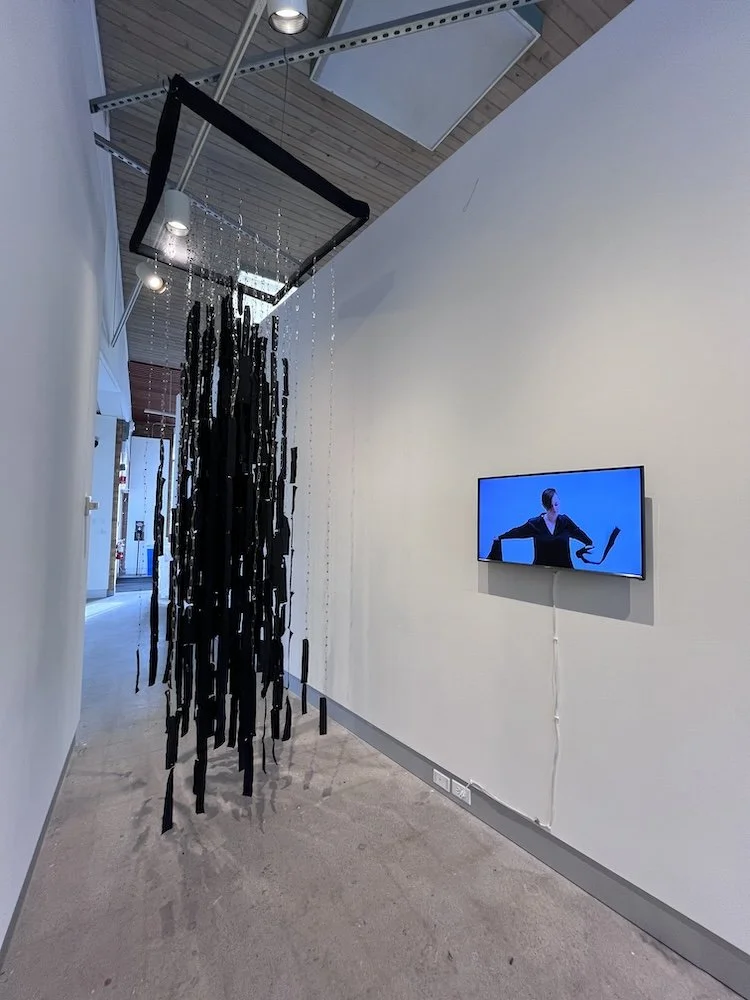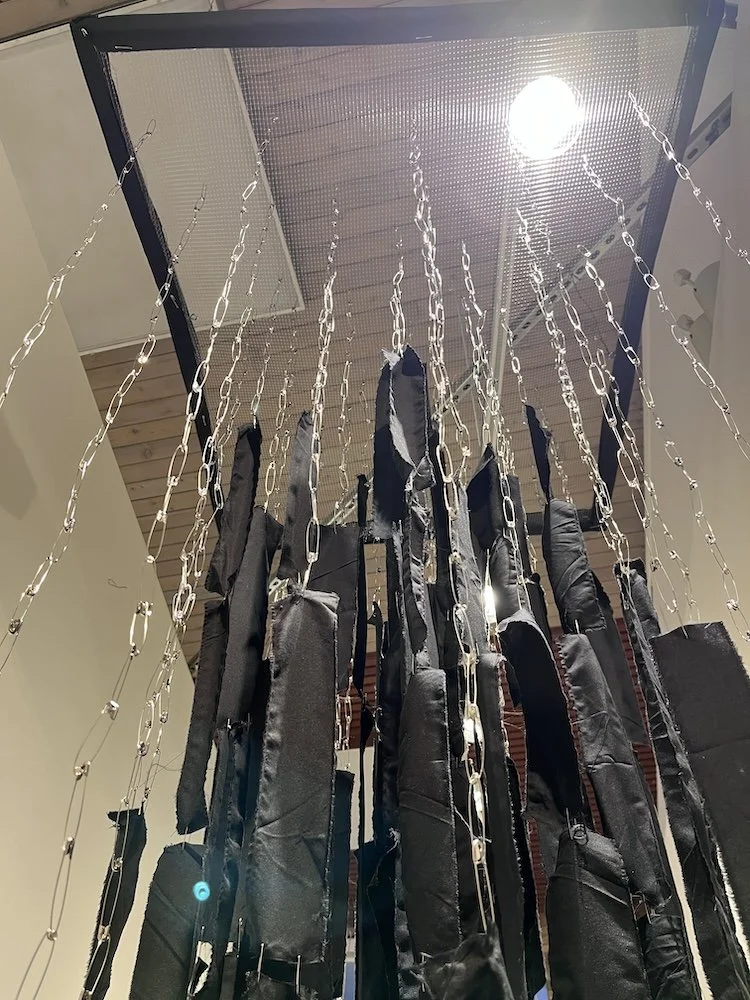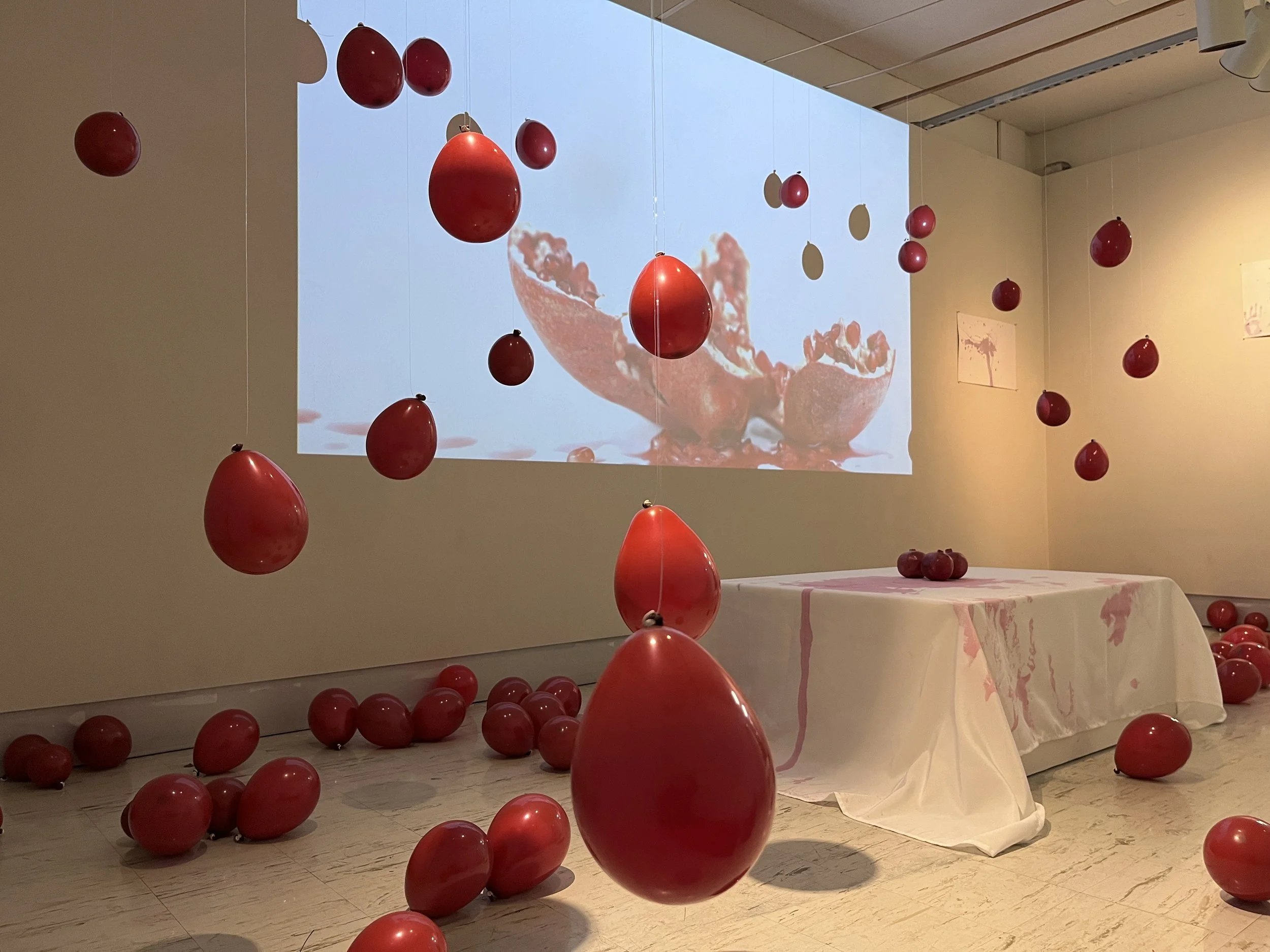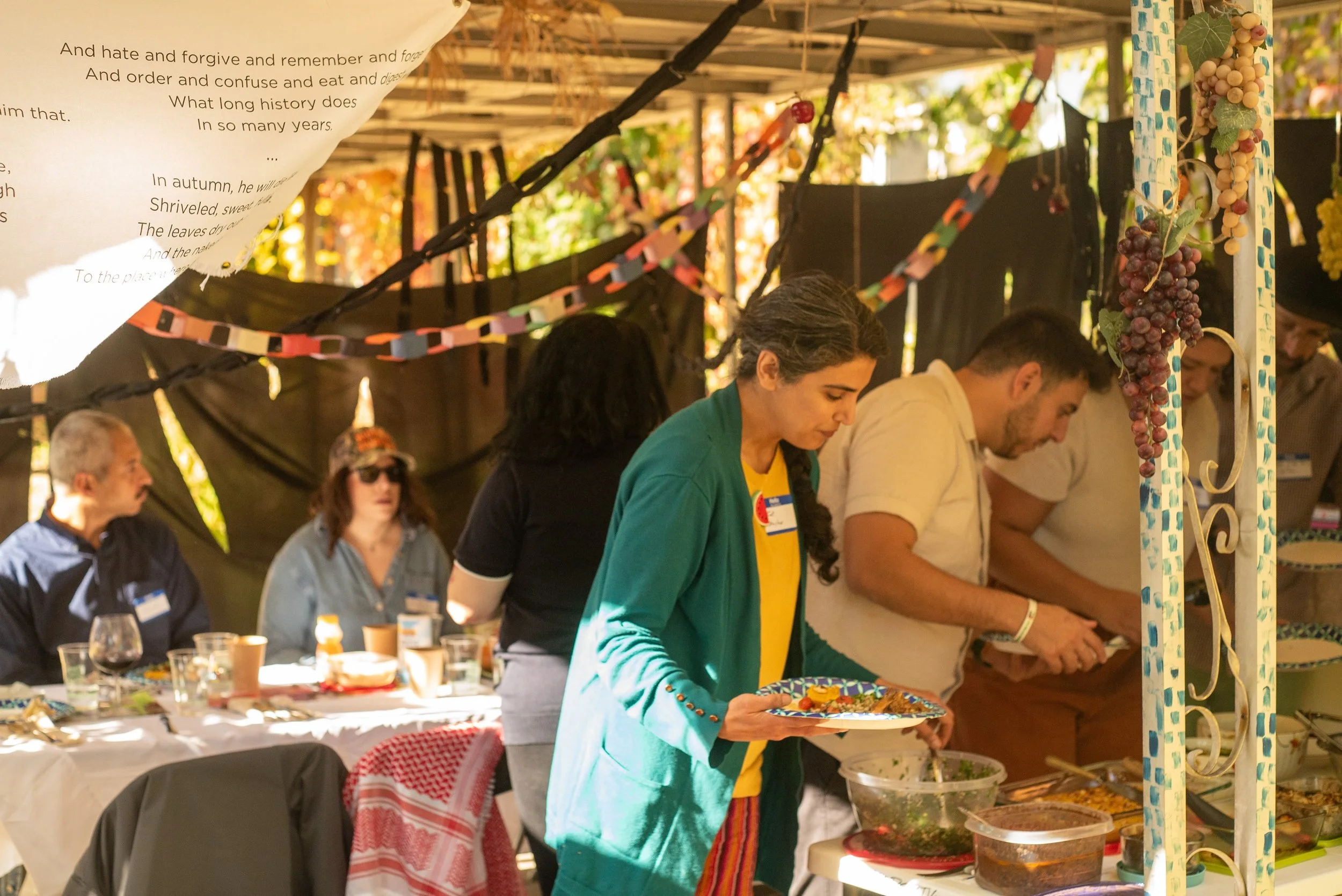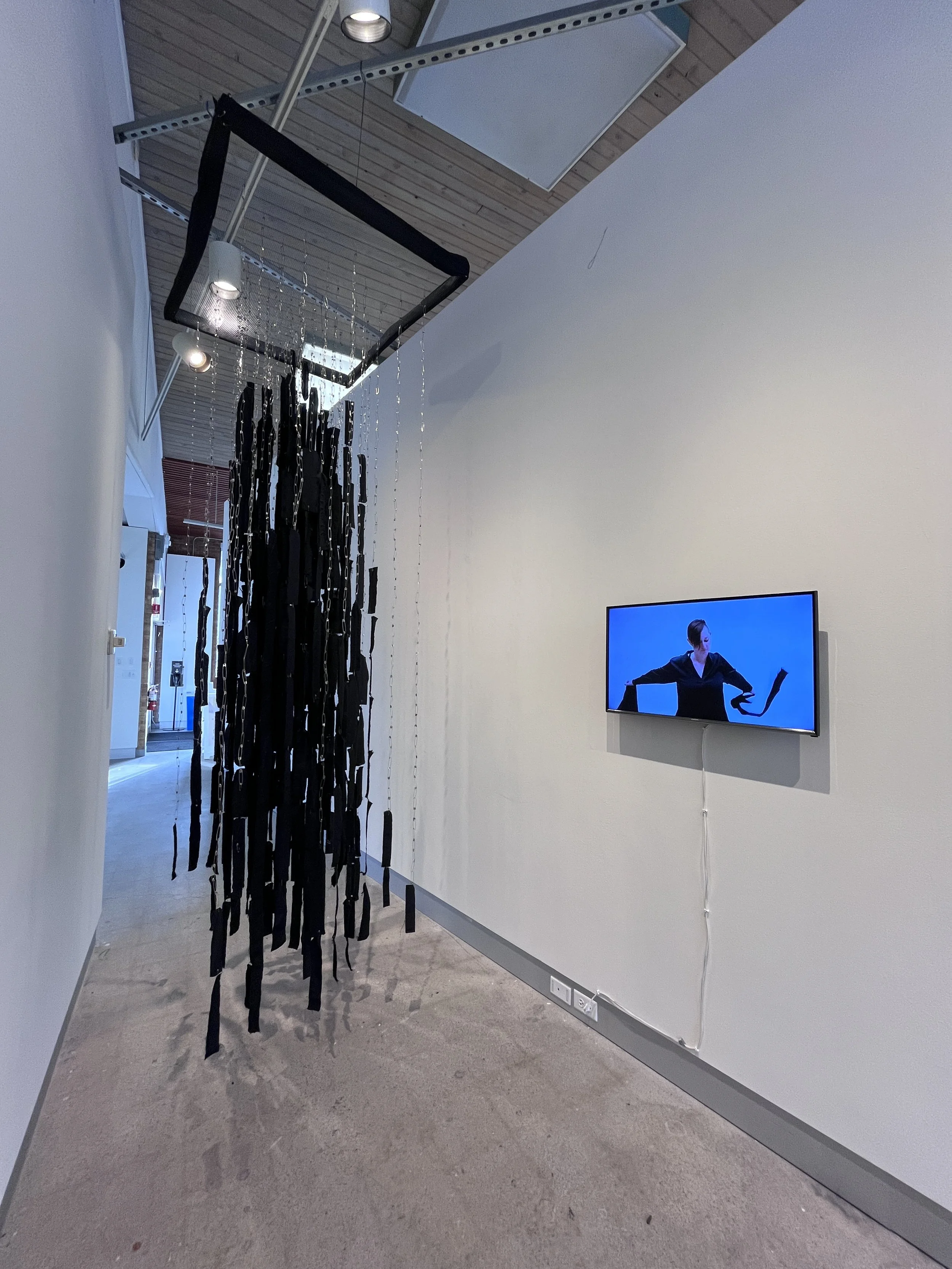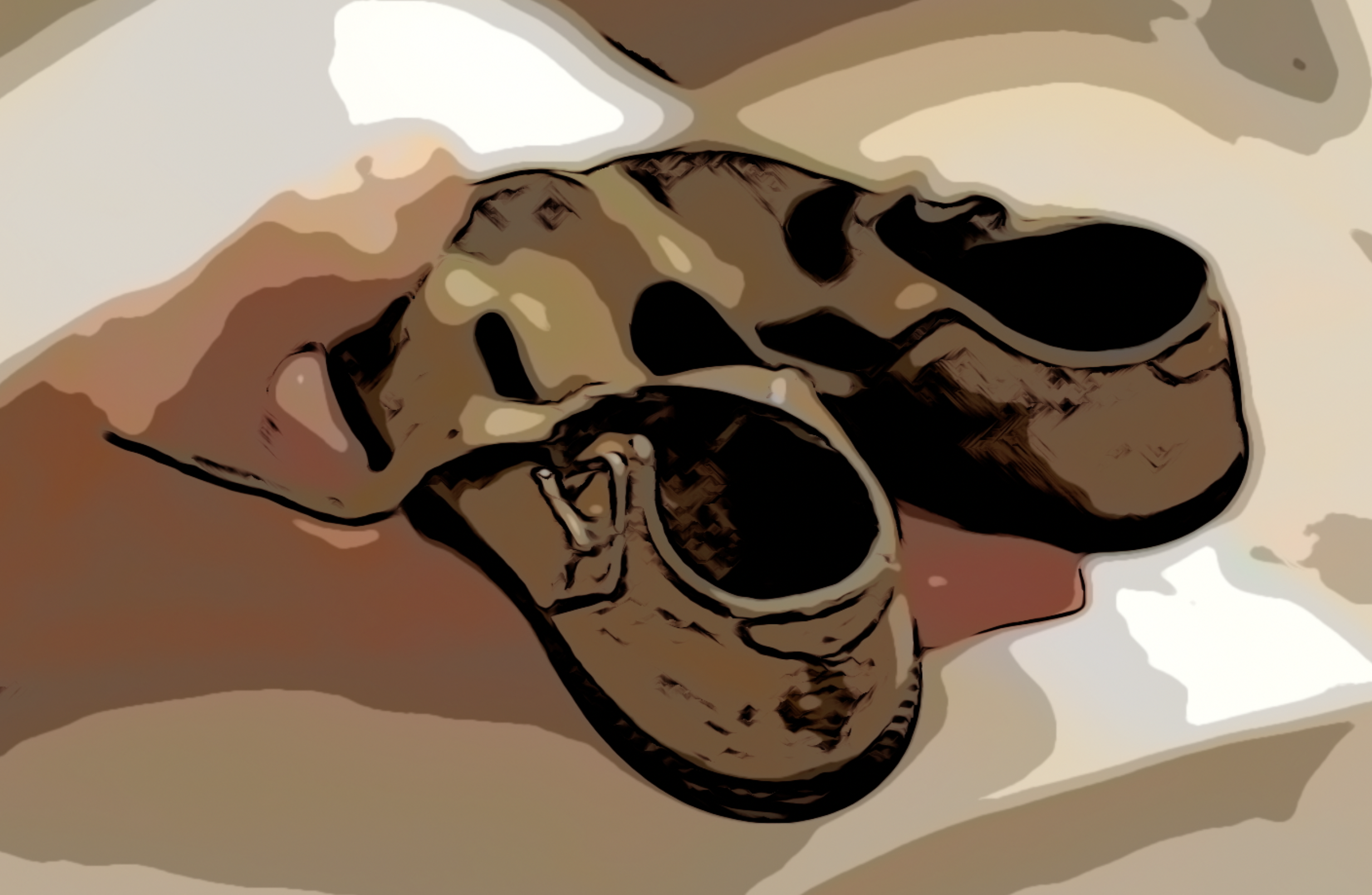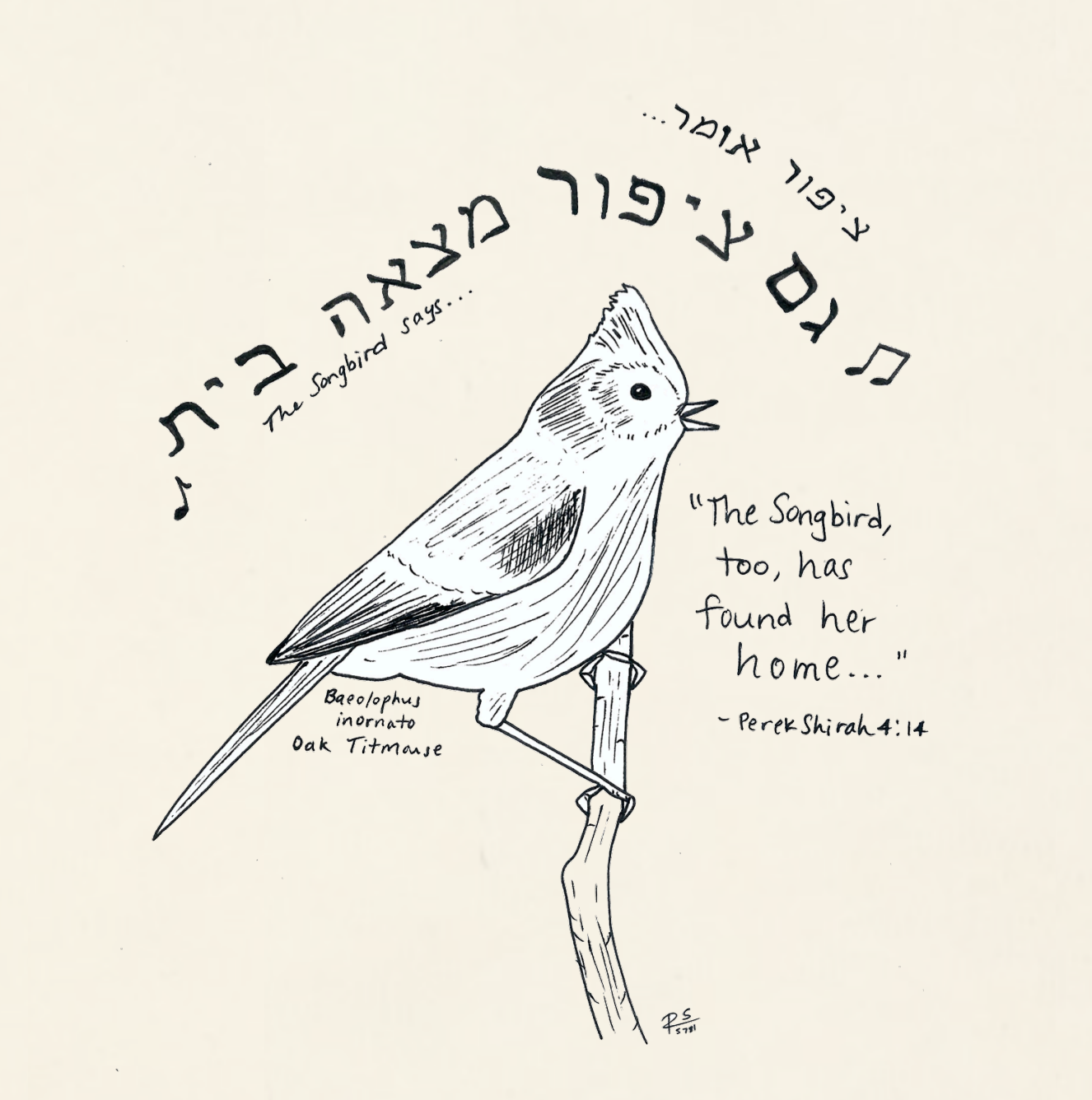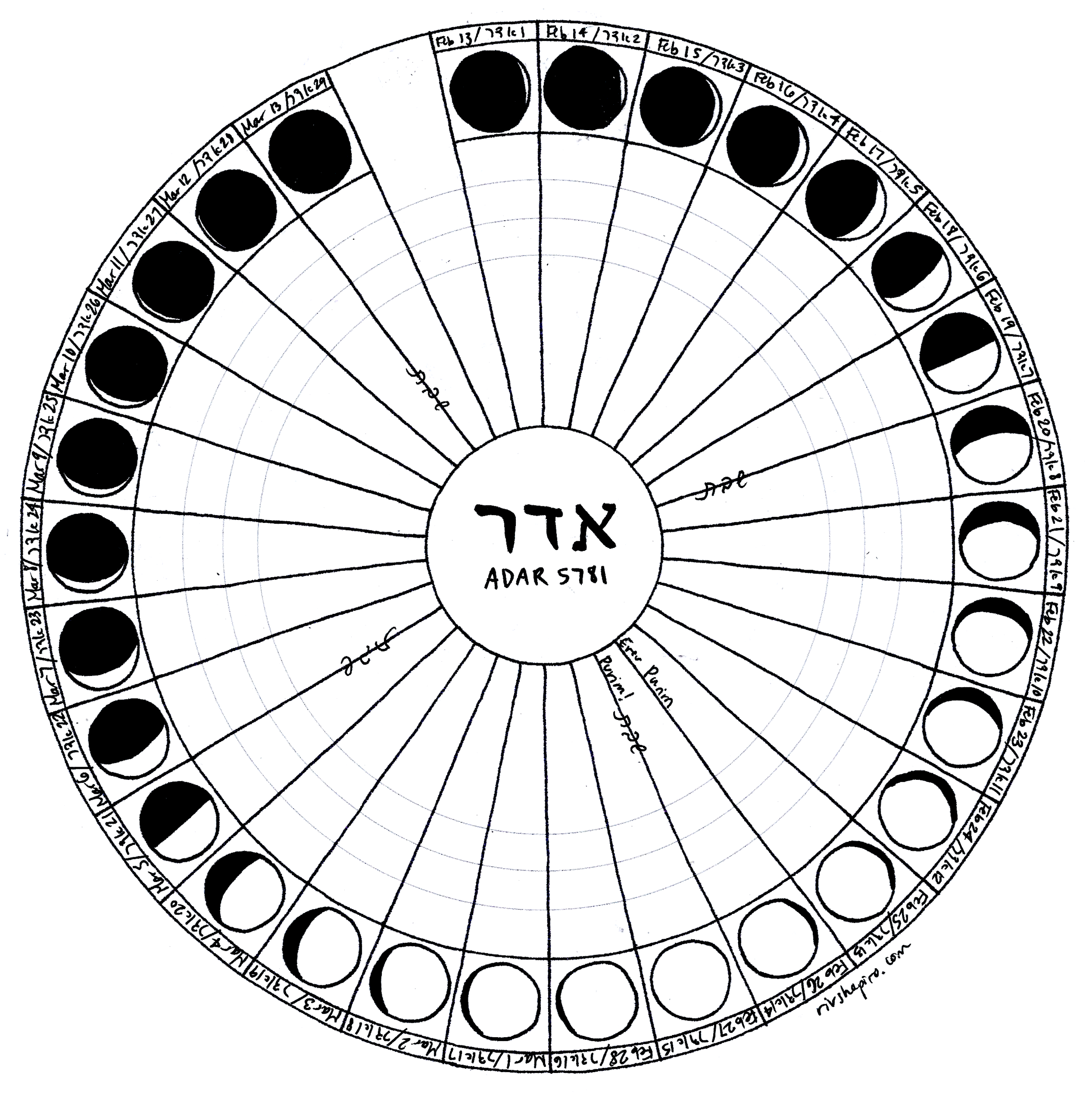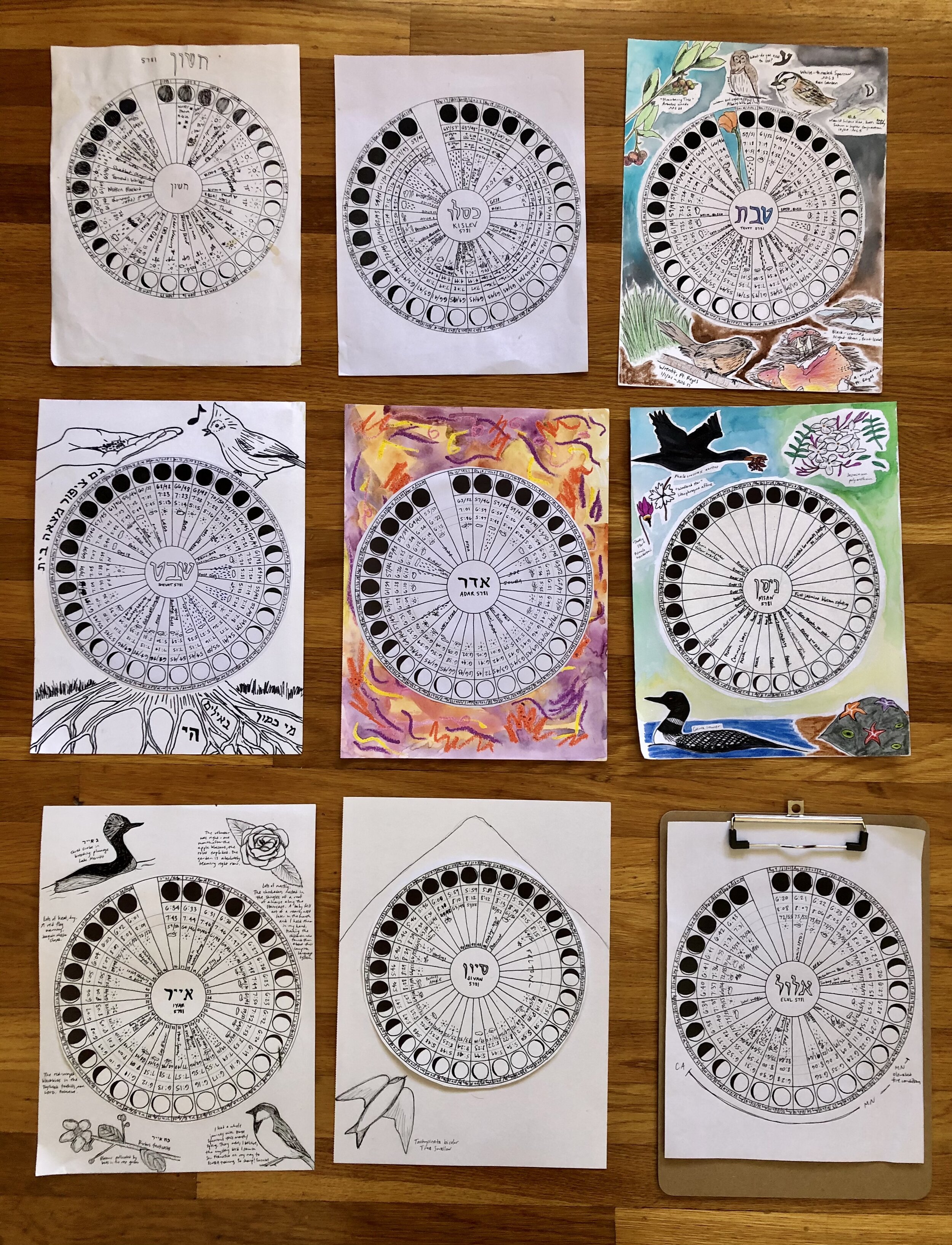Created for a group show called “Witness” (Star Tribune article) in May 2025, this participatory installation built upon my work with Kri’ah with an added dimensionality and weight as I incorporated chicken wire and stones.
In my latest explorations, I continue to investigate and deconstruct the myth of “us and them”. I am interested in mirror and shadow, cycles of trauma, and what happens when the border is exposed as a porous membrane. I am guided in this work by my eco-feminist Jewish spirituality, an inner knowing of our interconnectedness, and the joy of kinship with those the empire presents as my enemy. I am continually inspired by the words of Aurora Levins Morales in her 2002 poem “Red Sea”:
This time we're tied at the ankles.
We cannot cross until we carry each other,
all of us refugees, all of us prophets.
No more taking turns on history's wheel,
trying to collect old debts no-one can pay.
The sea will not open that way.
This time that country
is what we promise each other,
our rage pressed cheek to cheek
until tears flood the space between,
until there are no enemies left,
because this time no one will be left to drown
and all of us must be chosen.
This time it's all of us or none.
